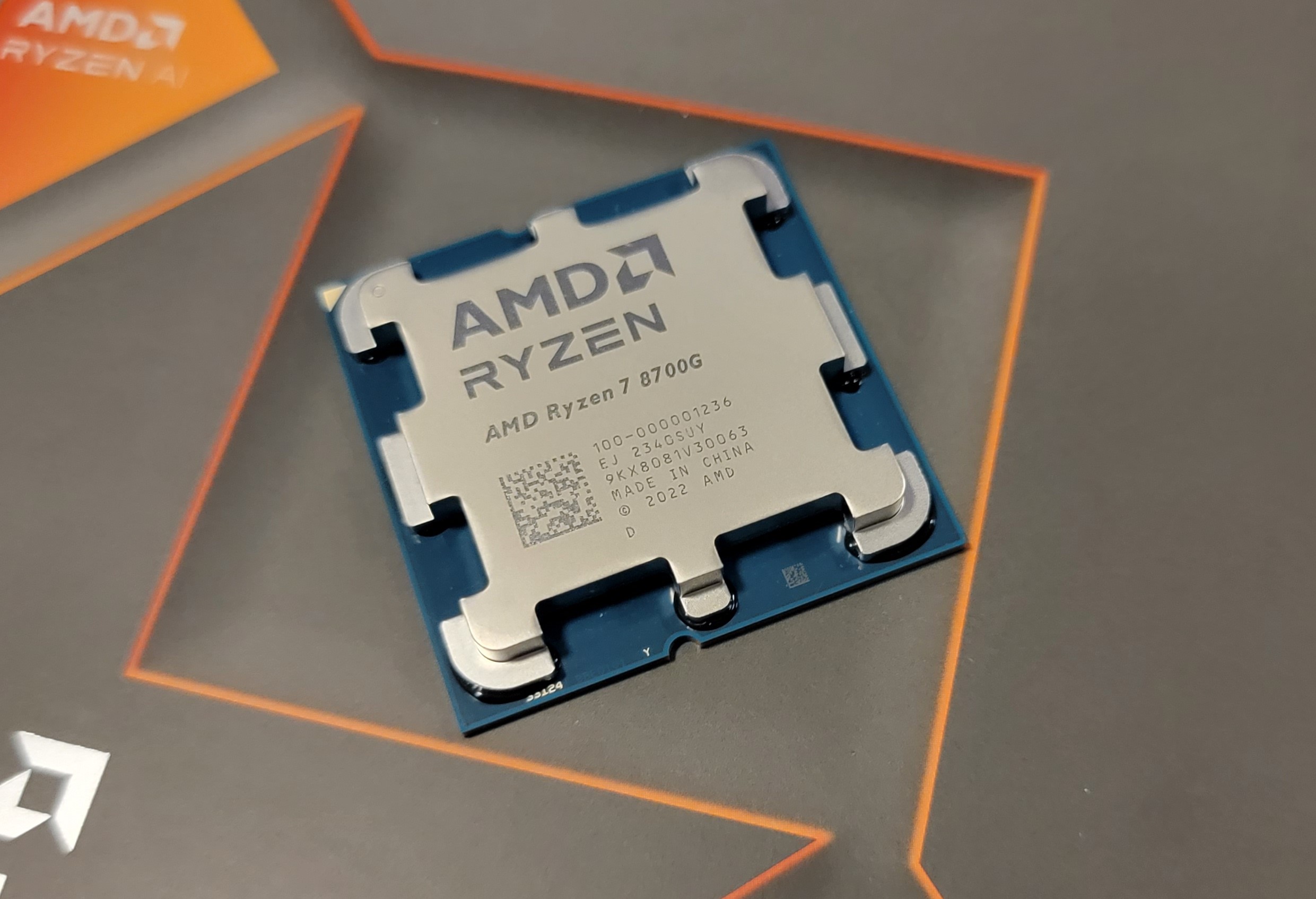Why you can trust Tom's Hardware
AMD Ryzen 7 8700G Application Benchmarks, the TLDR:
We can boil down productivity application performance into two broad categories: single- and multi-threaded. These slides show the geometric mean of performance in several of our most important tests in each category, but be sure to look at the expanded results below.
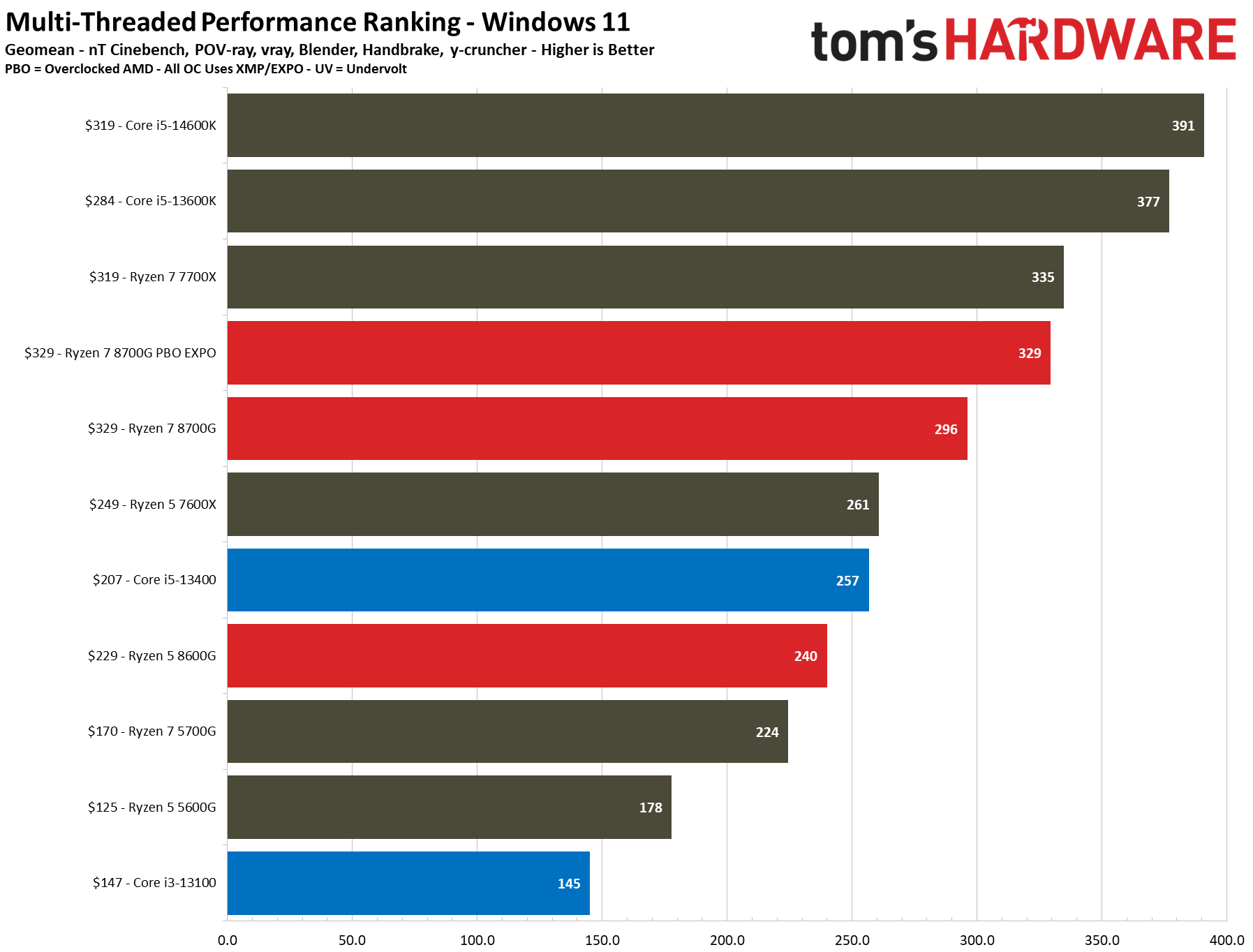
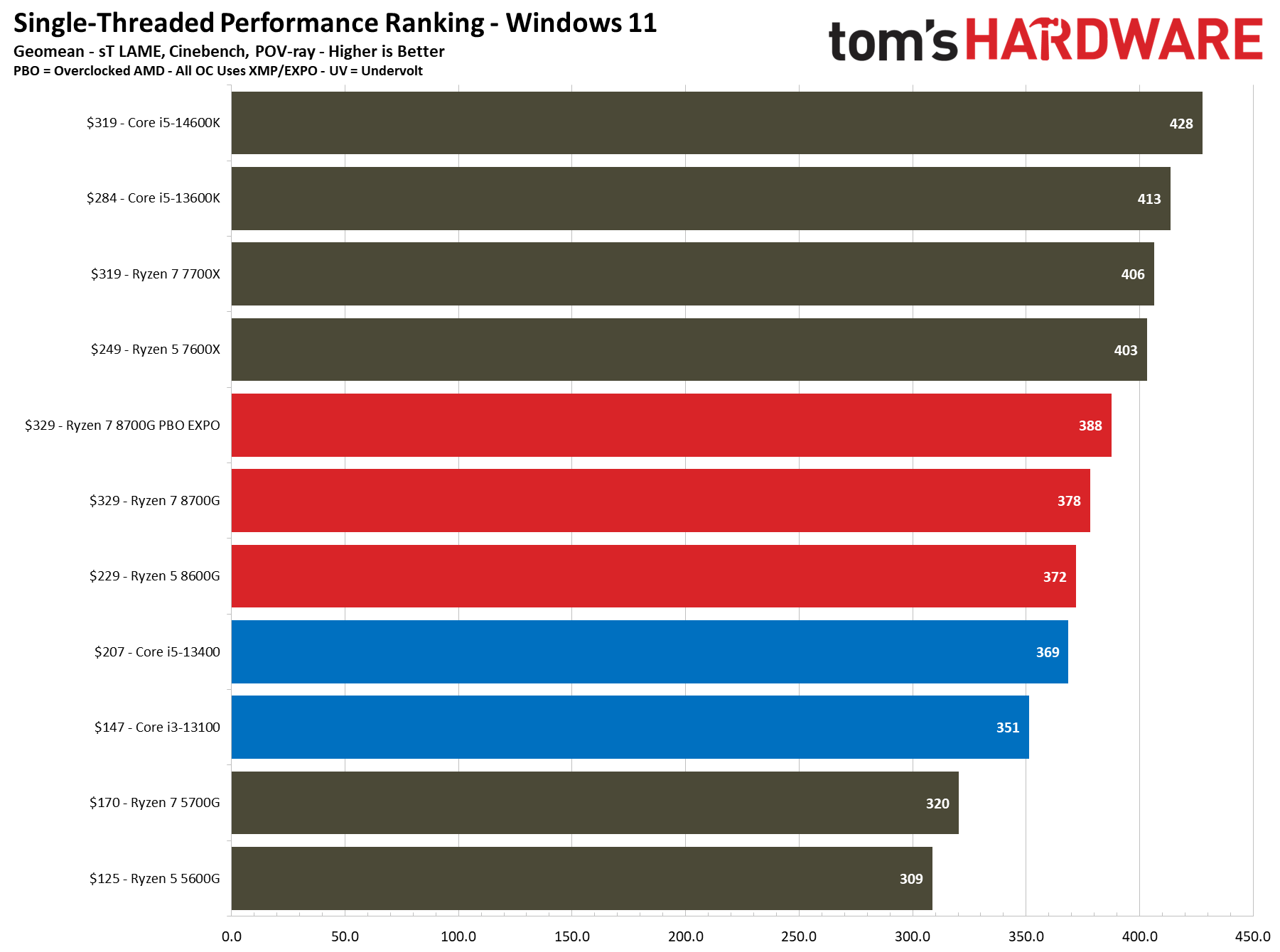
The Ryzen 7 8700G is clearly focused on delivering exceptional gaming performance from its integrated graphics, but it will also be used for more general-purpose workloads. However, similarly-priced processors designed primarily for compute tend to deliver more performance in core-bound workloads — you get fewer cores and lower clock rates in exchange for the 8700G's extra graphics horsepower. The Ryzen 7 8700G is also not quite as performant on a core-for-core basis due to its lower L3 cache capacity, clock rates, and thermal characteristics.
As expected, the move from Zen 3 to Zen 4 processing cores delivers substantial gen-on-gen uplift; the 8700G is 32% faster in multi-threaded and 18% faster in single-threaded work than the prior-gen Ryzen 7 5700G. The Ryzen 5 8600G also delivers comparable gains over its predecessor, the Ryzen 5 5600G.
The Ryzen 7 8700G delivers strong productivity performance for a budget system as it speeds past the Core i5-13400. Still, it faces stiff competition at its price point: The similarly-priced Core i5-14600K is 32% faster in multi-threaded and 13% faster in single-threaded workloads.
The Ryzen 7 8700G delivers an acceptable amount of CPU processing heft for its target market of budget gaming systems, but the exceptional gaming performance does come with the tradeoff of lower performance in productivity apps. AMD also has stout competition from its own AM5 stable, including the Ryzen 7 7700X and the Ryzen 5 7600X, highlighting that there are better options for those that prioritize performance in productivity applications.
Rendering Benchmarks on AMD Ryzen 7 8700G
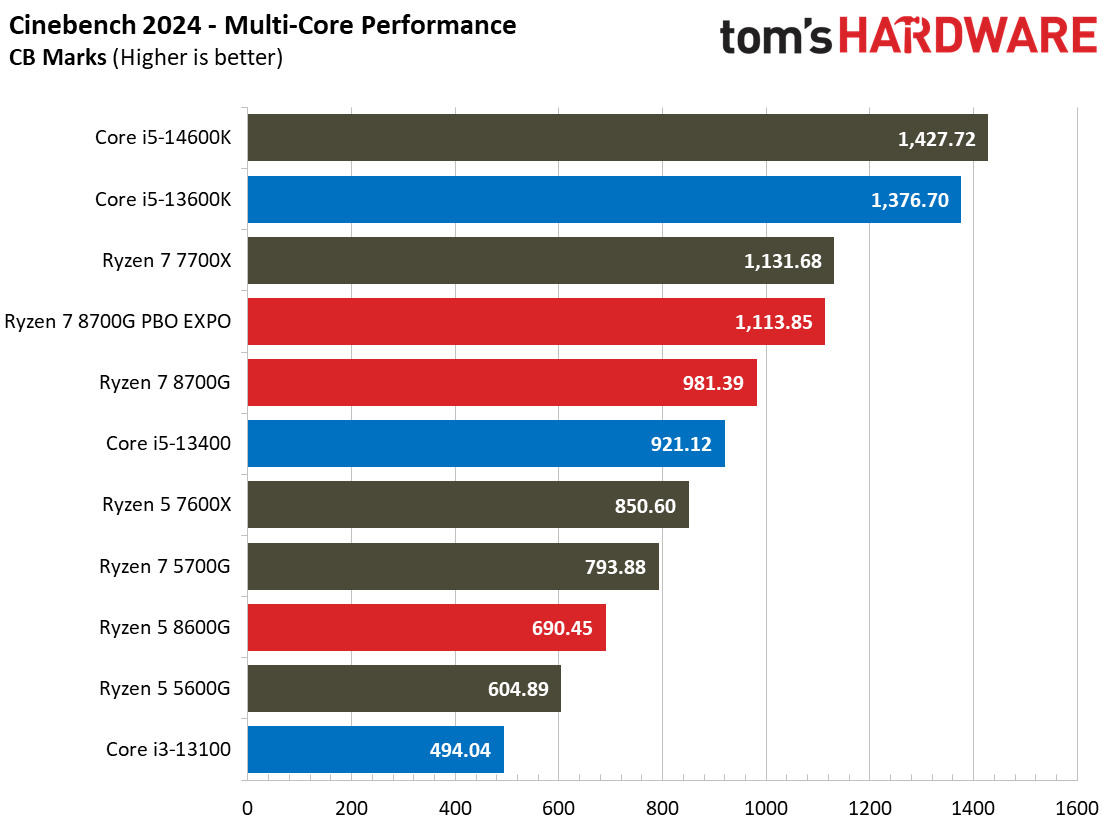
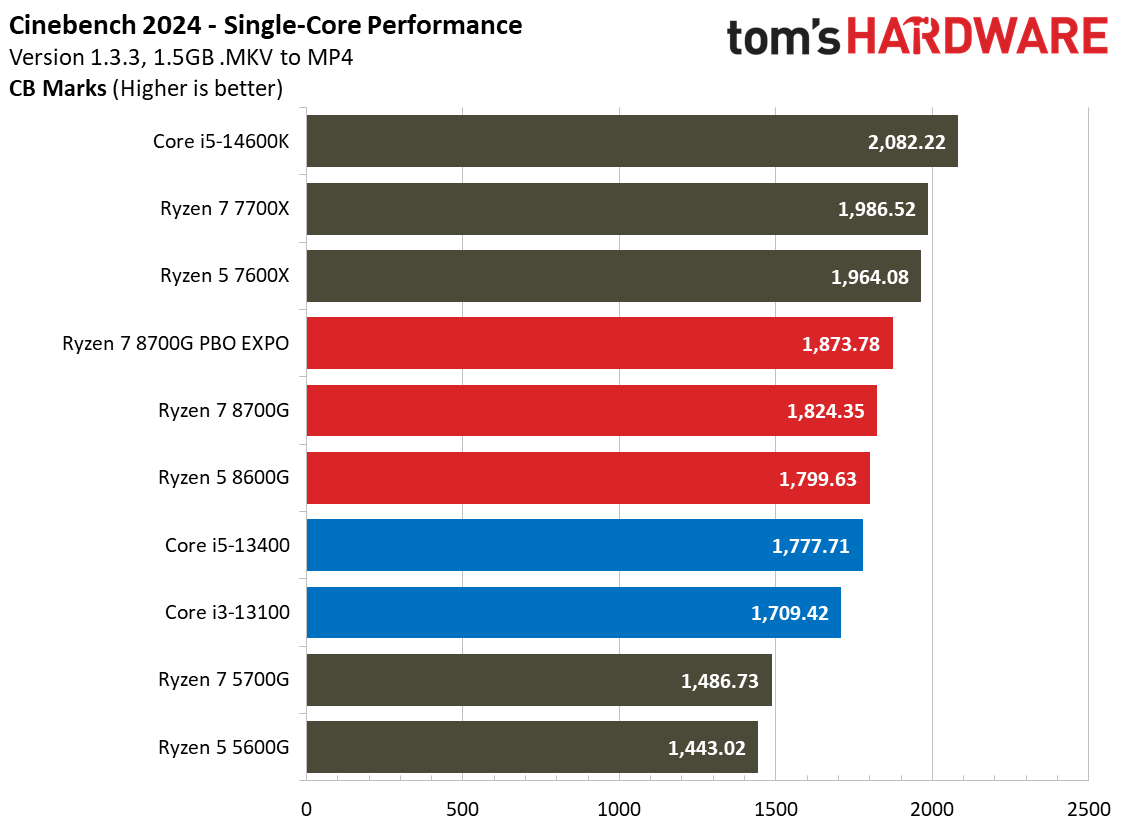
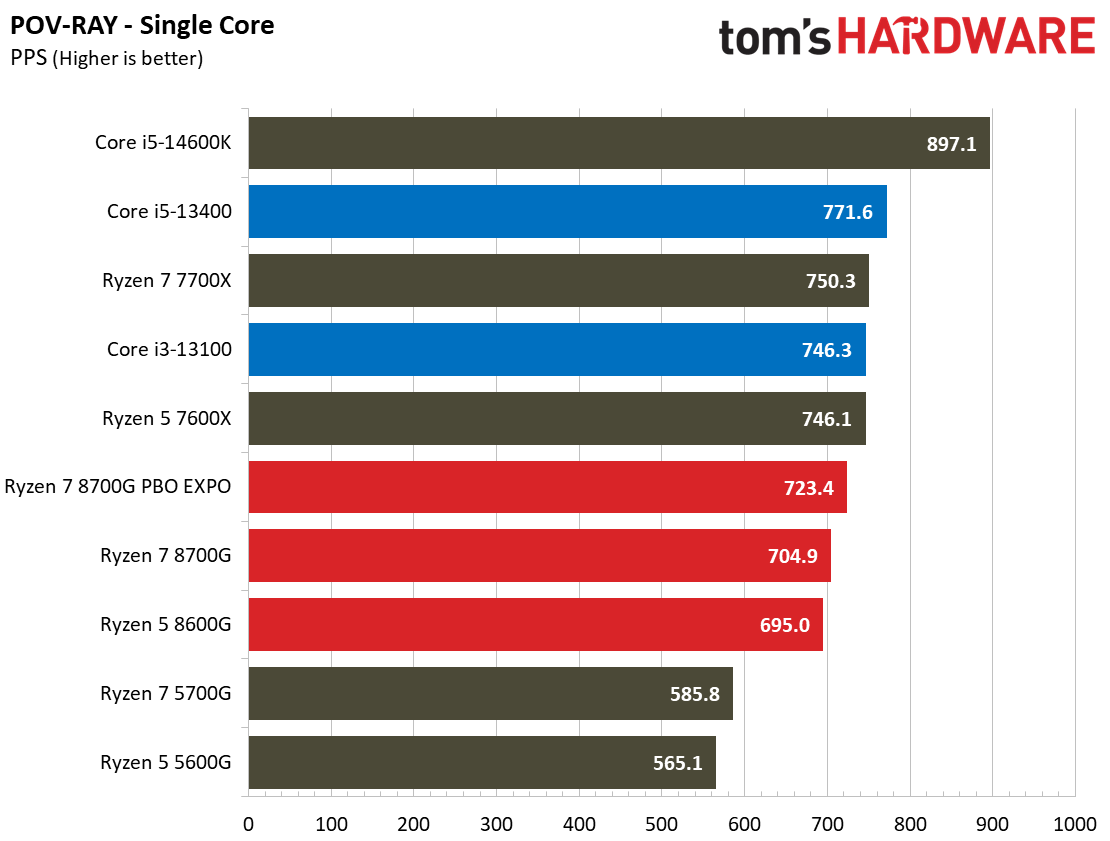
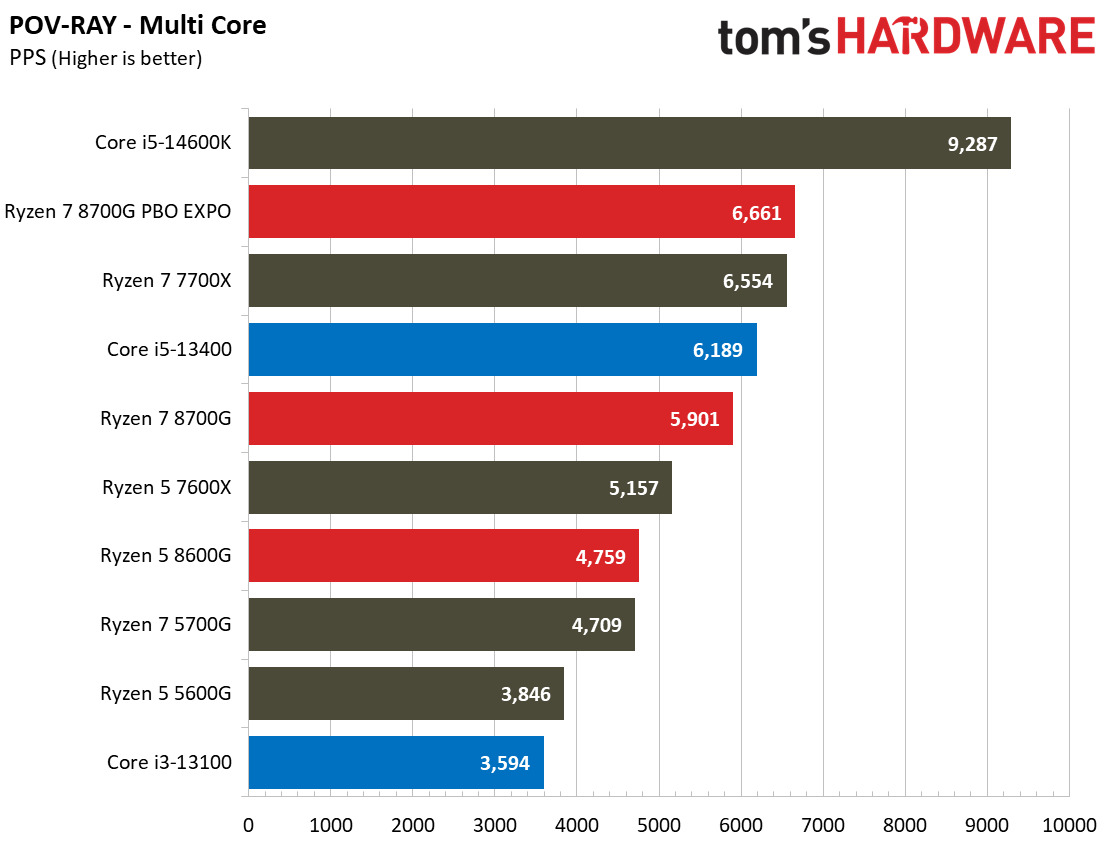
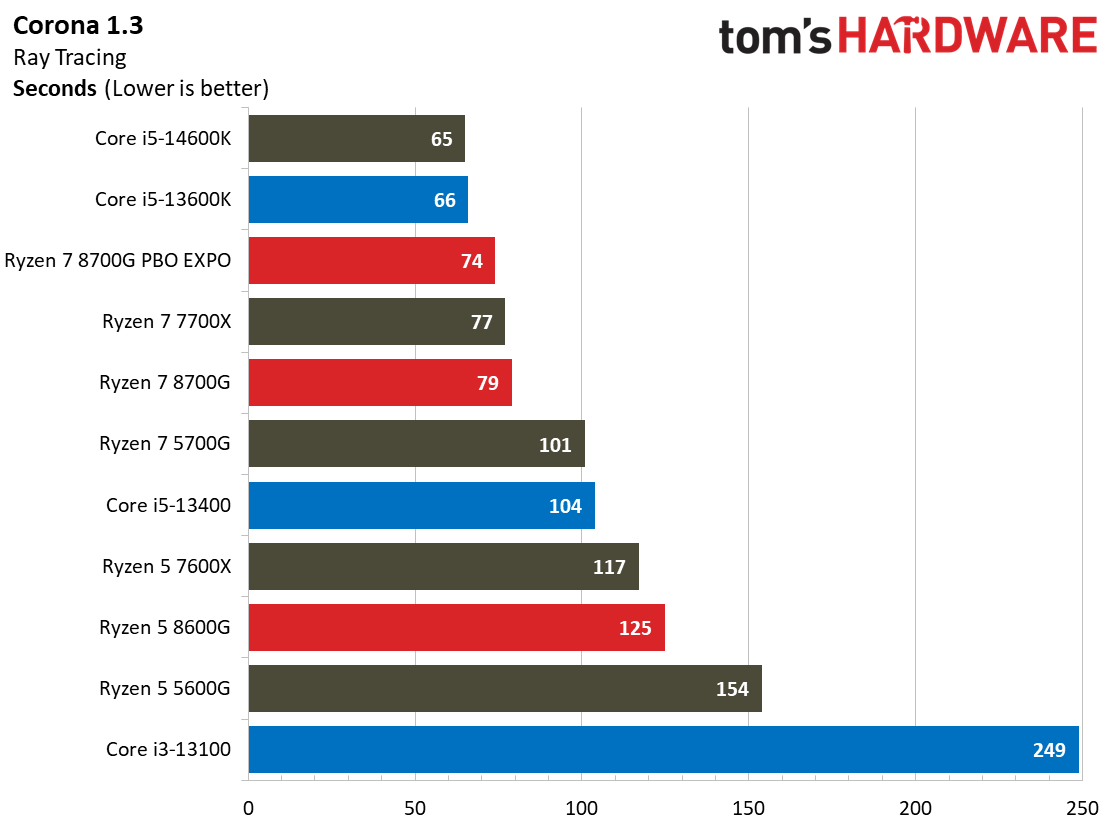
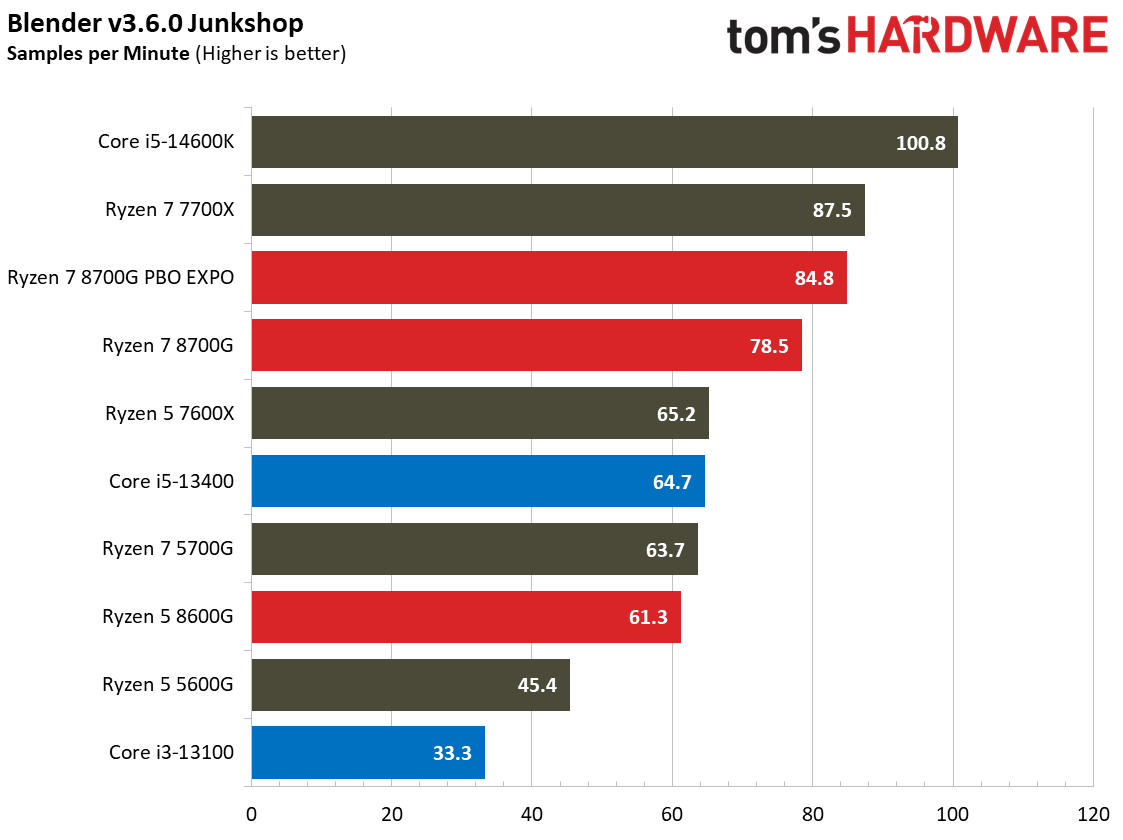
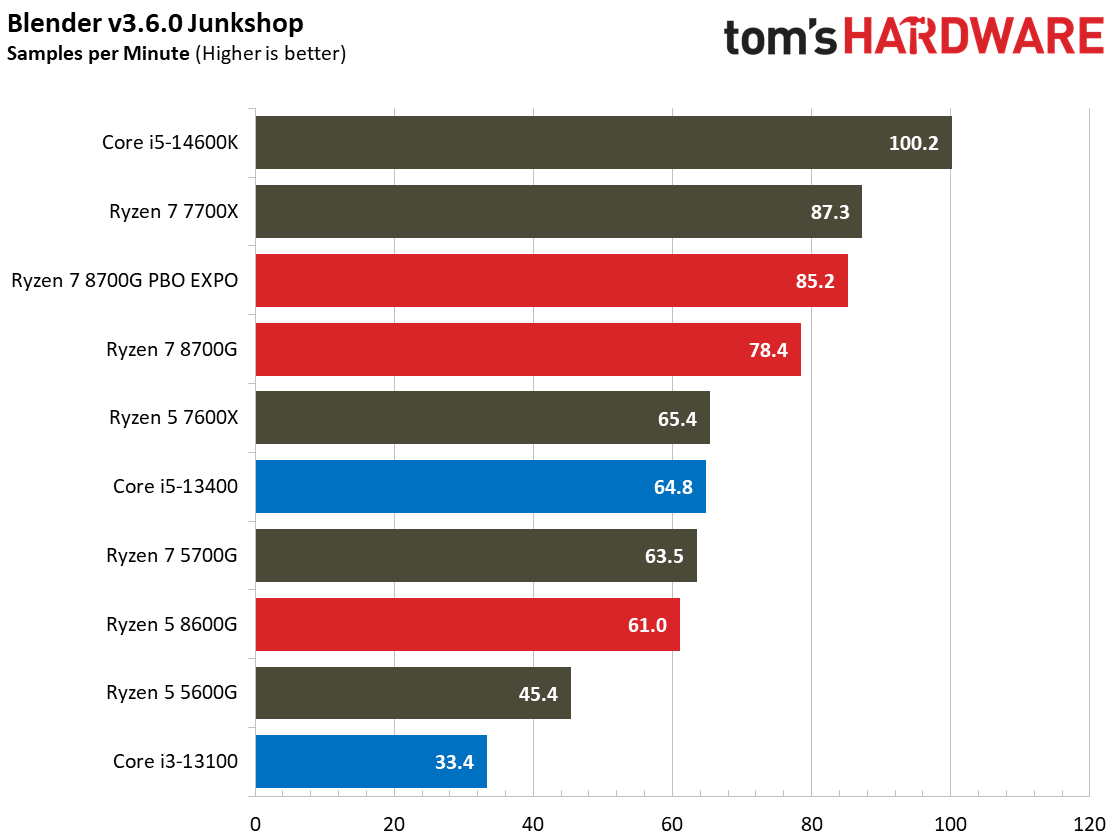
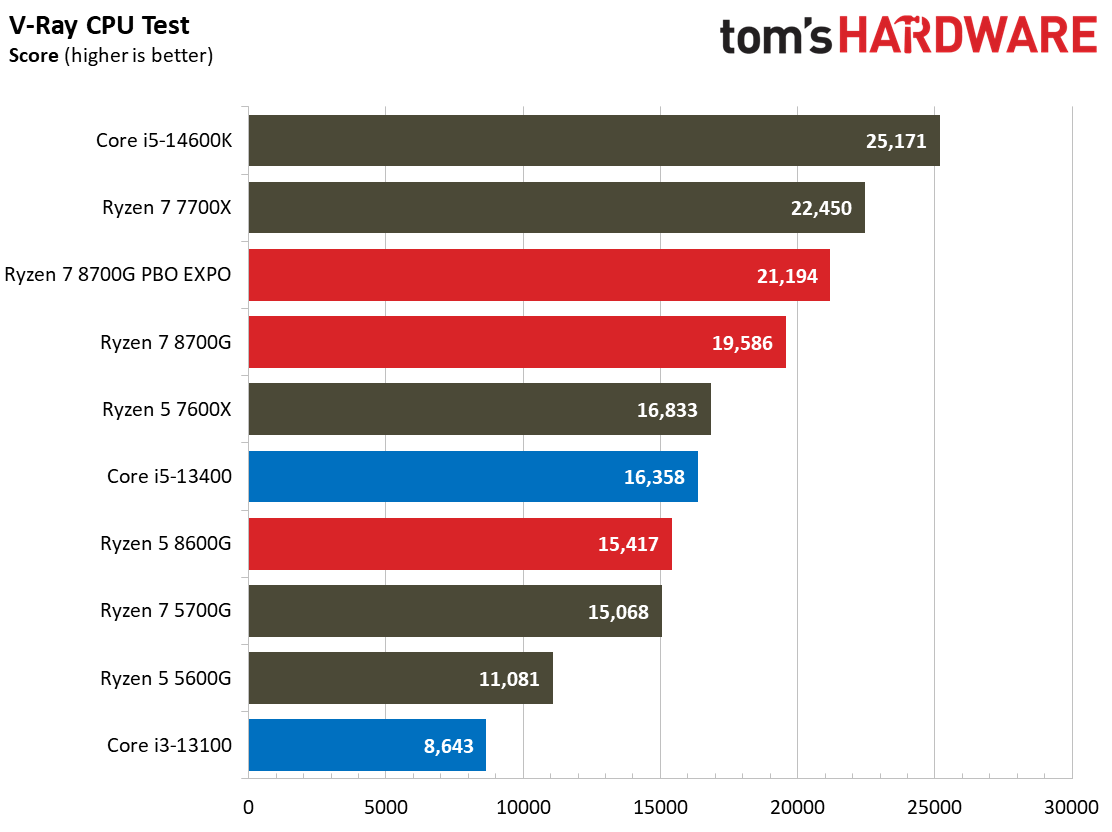
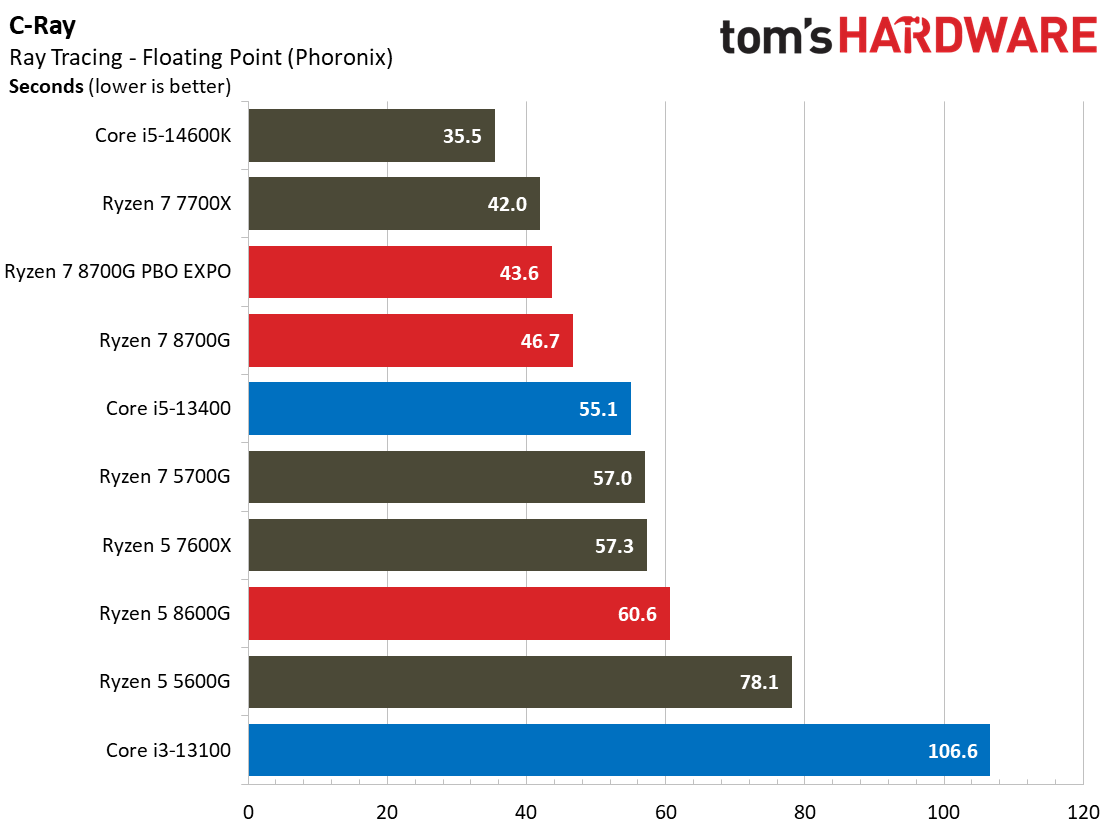
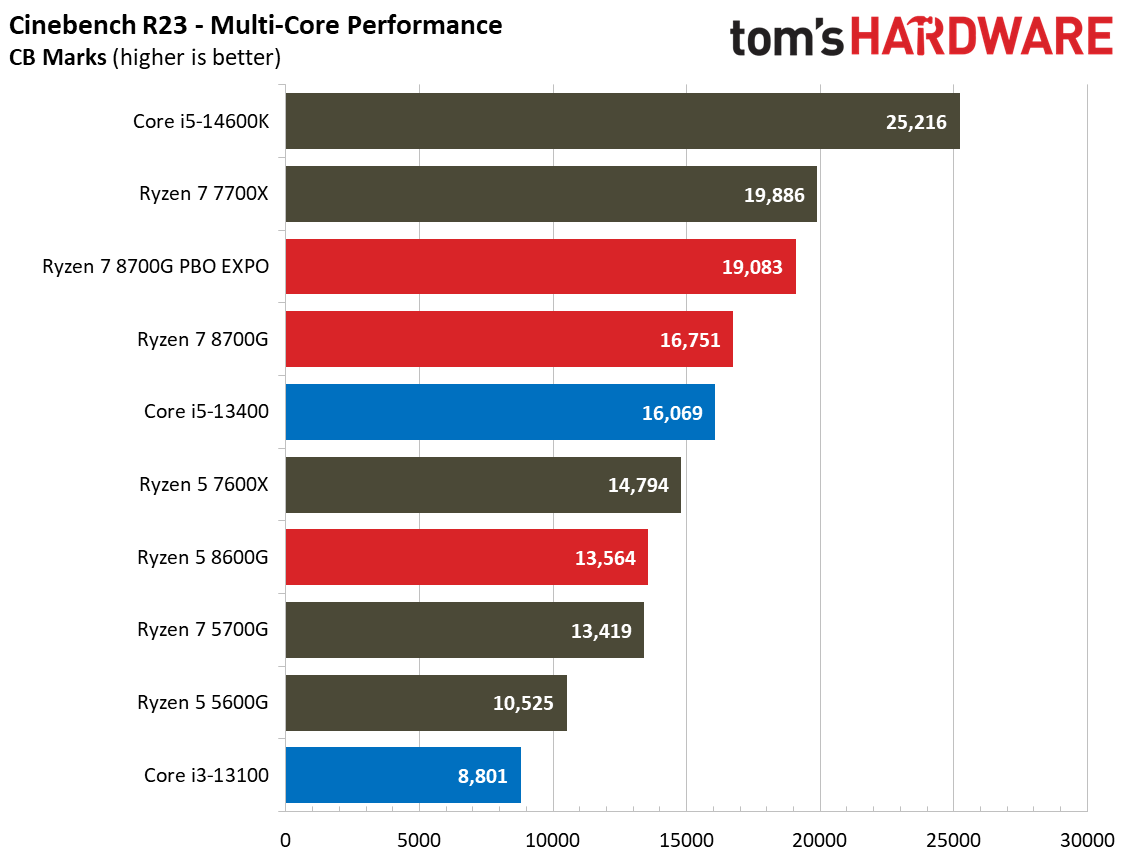
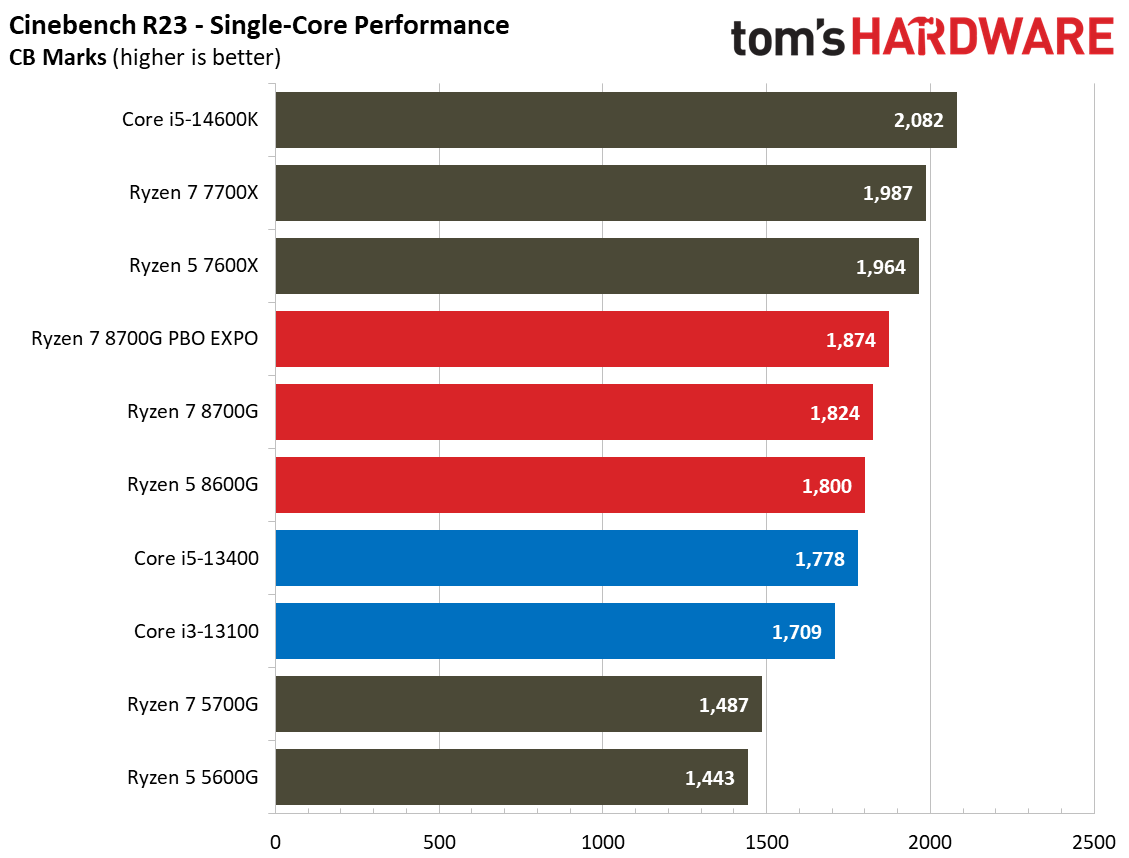
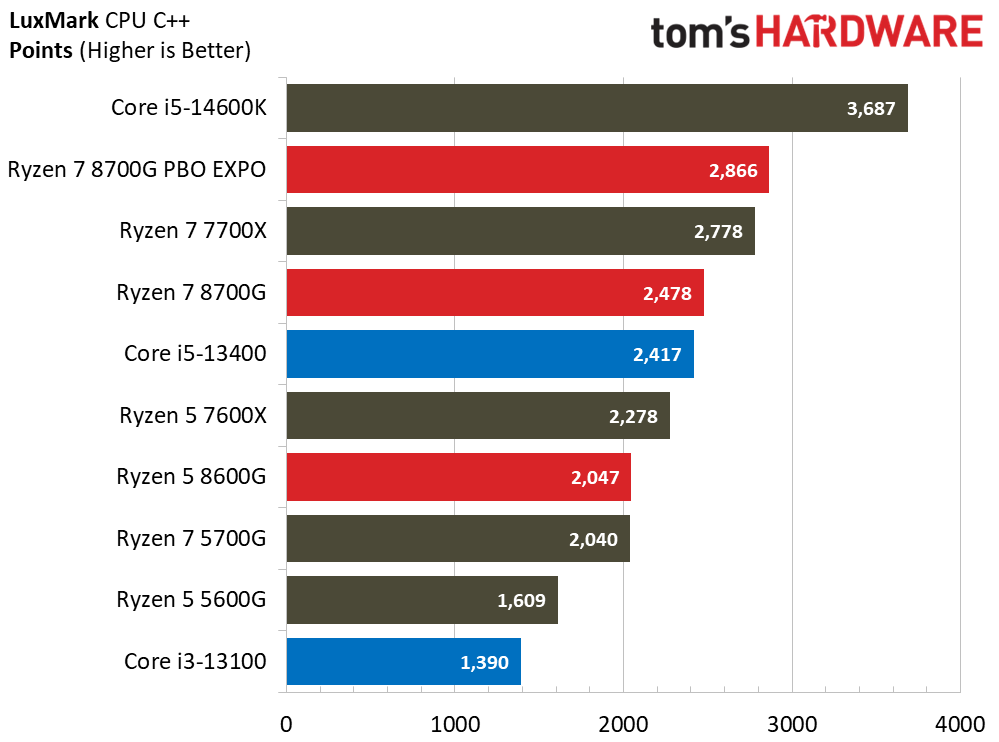
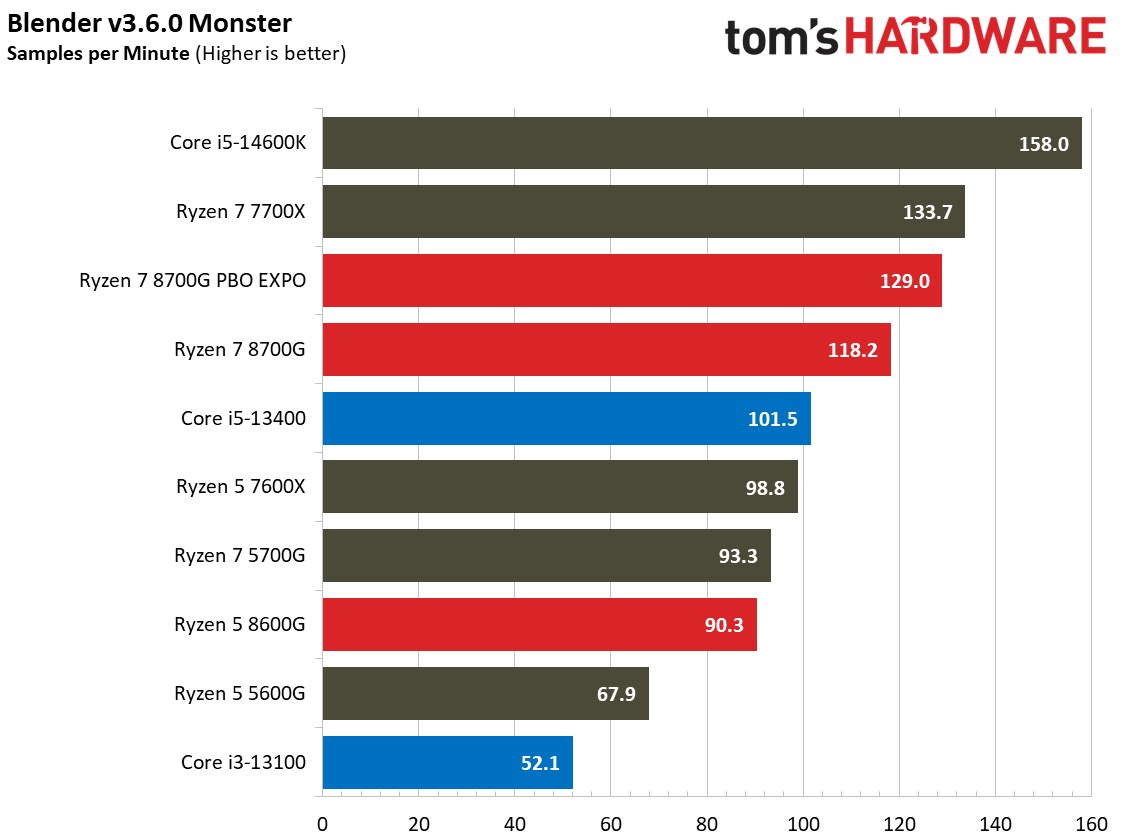
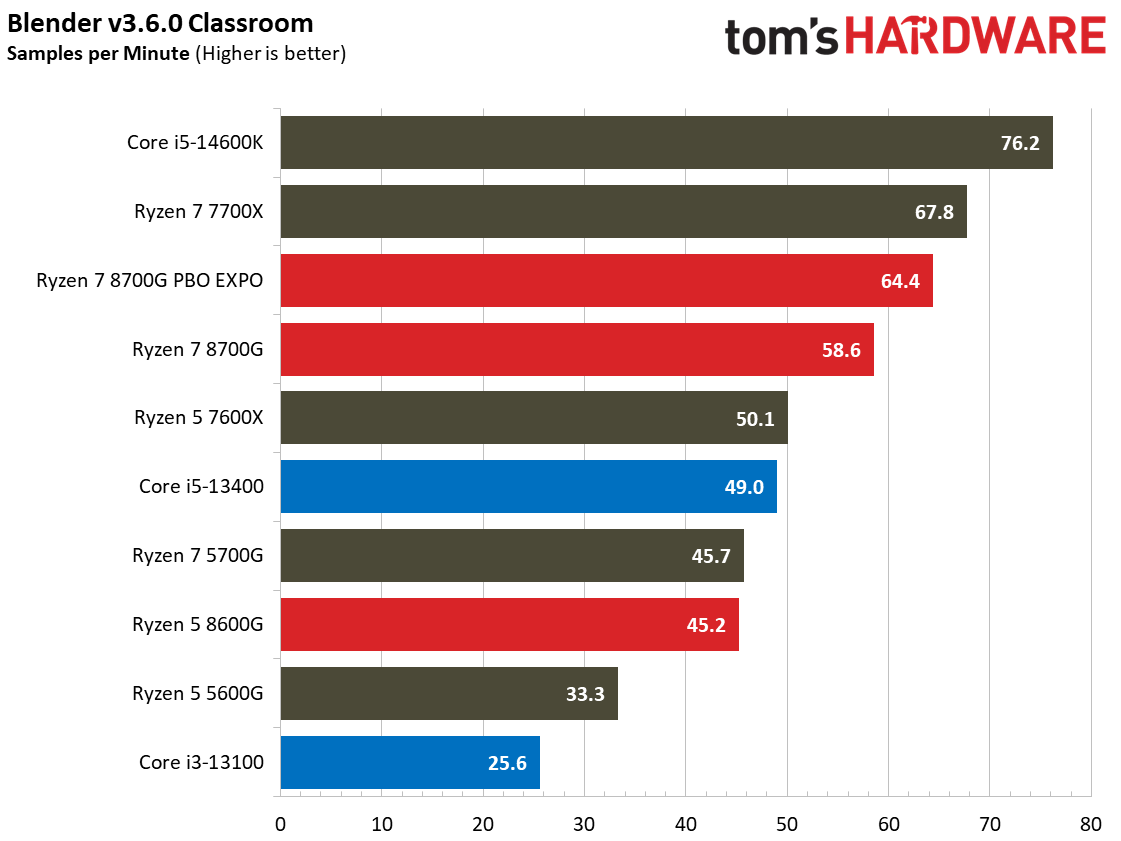
The Ryzen 7 8700G is 23% faster than the previous-gen 5700G in the Cinebench 2024 multi-core test and 22% faster in single-threaded performance, giving us a good general feel for the comparisons across this spate of compute-heavy benchmarks. Naturally, popping the cork off the power limits with overclocking yields a bit more grunt power in threaded workloads, but you should keep your expectations in check for these heavy rendering workloads — the Ryzen 7 8700G delivers plenty of performance here for the target audience, but faster options are available.
Encoding Benchmarks on AMD Ryzen 7 8700G
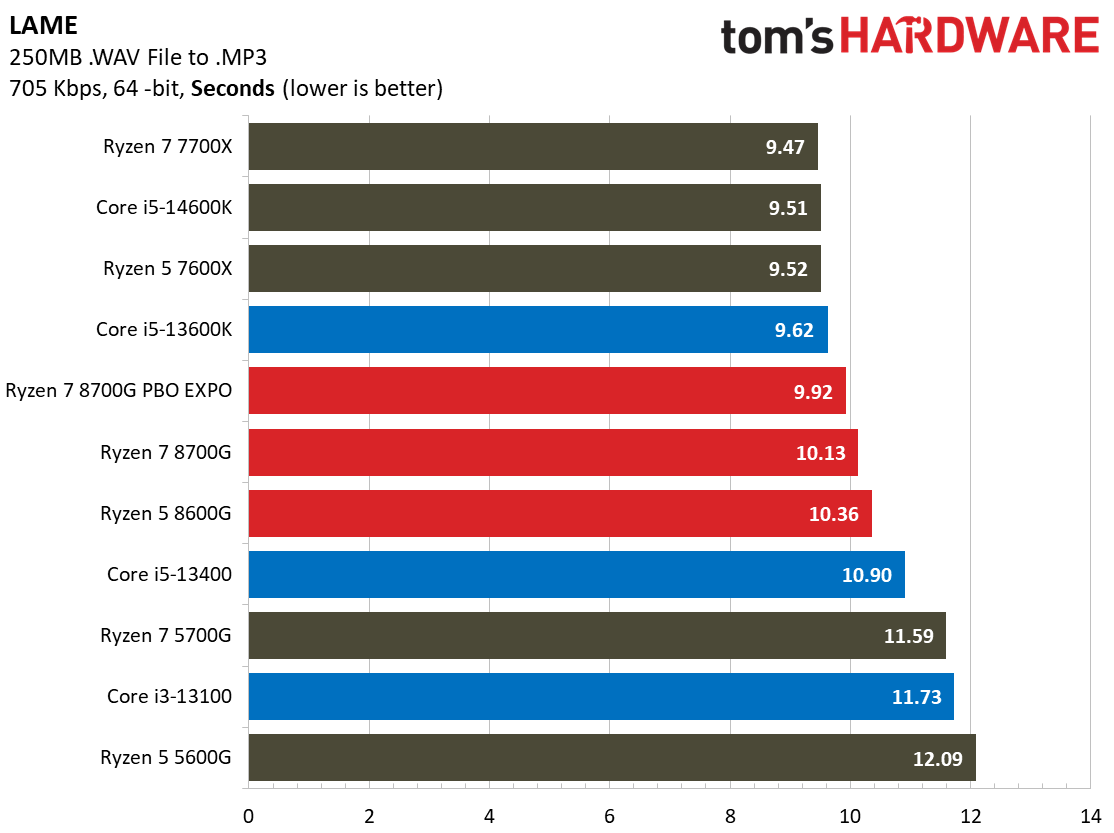
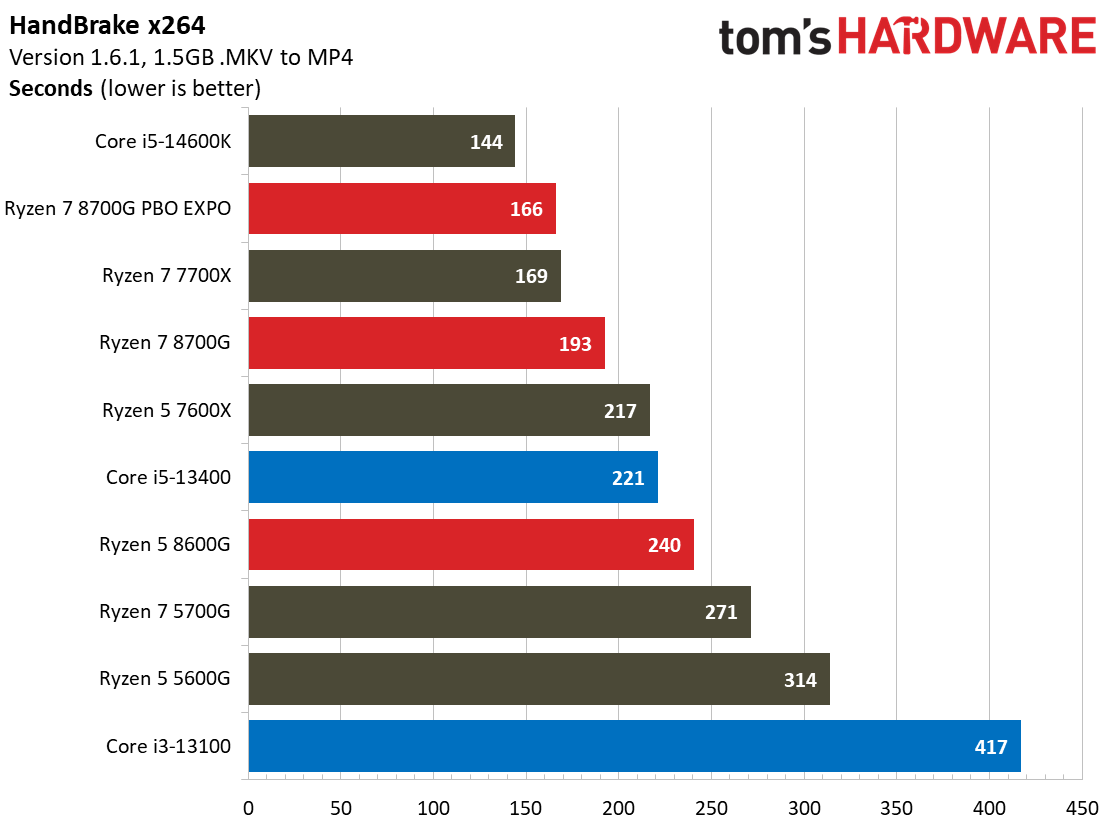
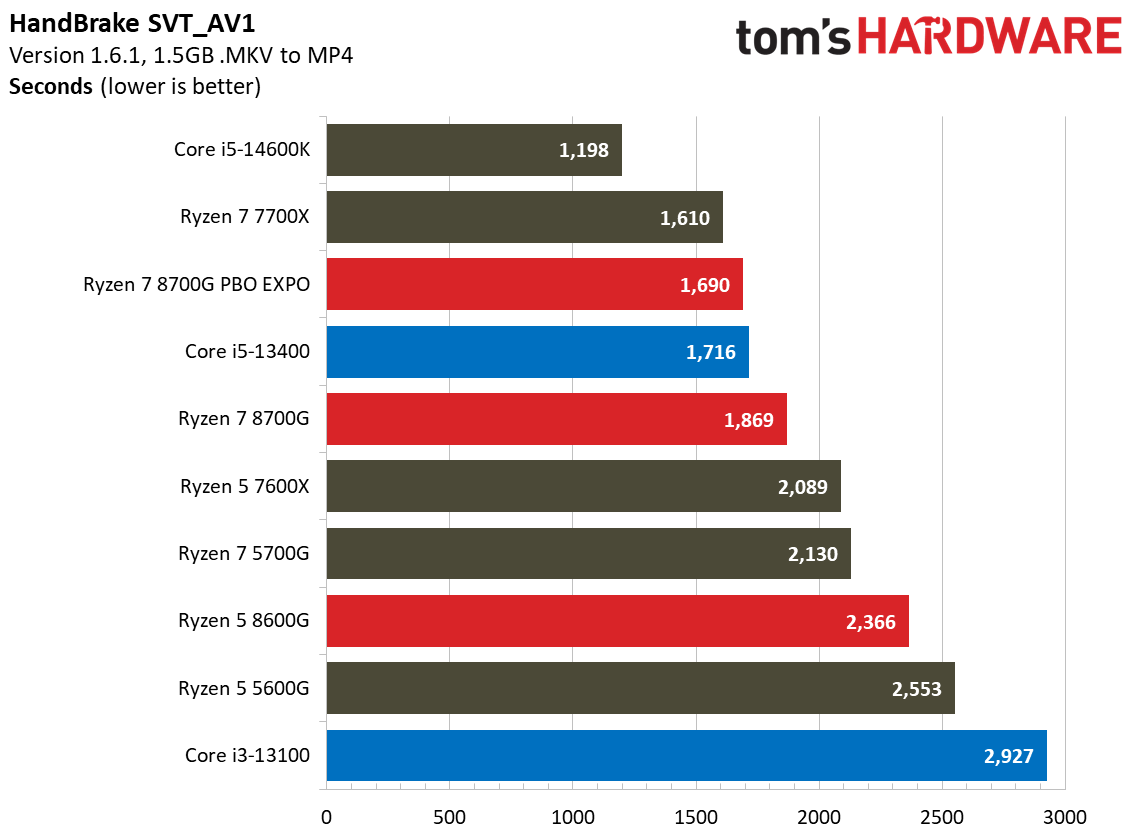
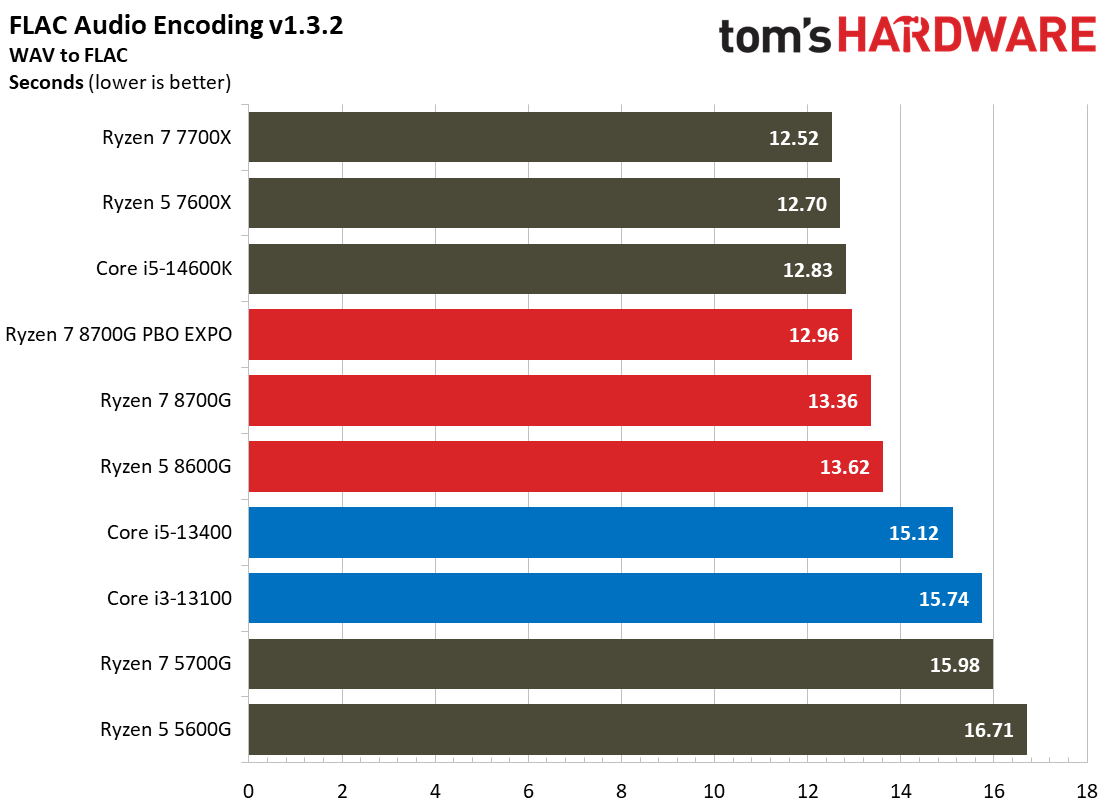
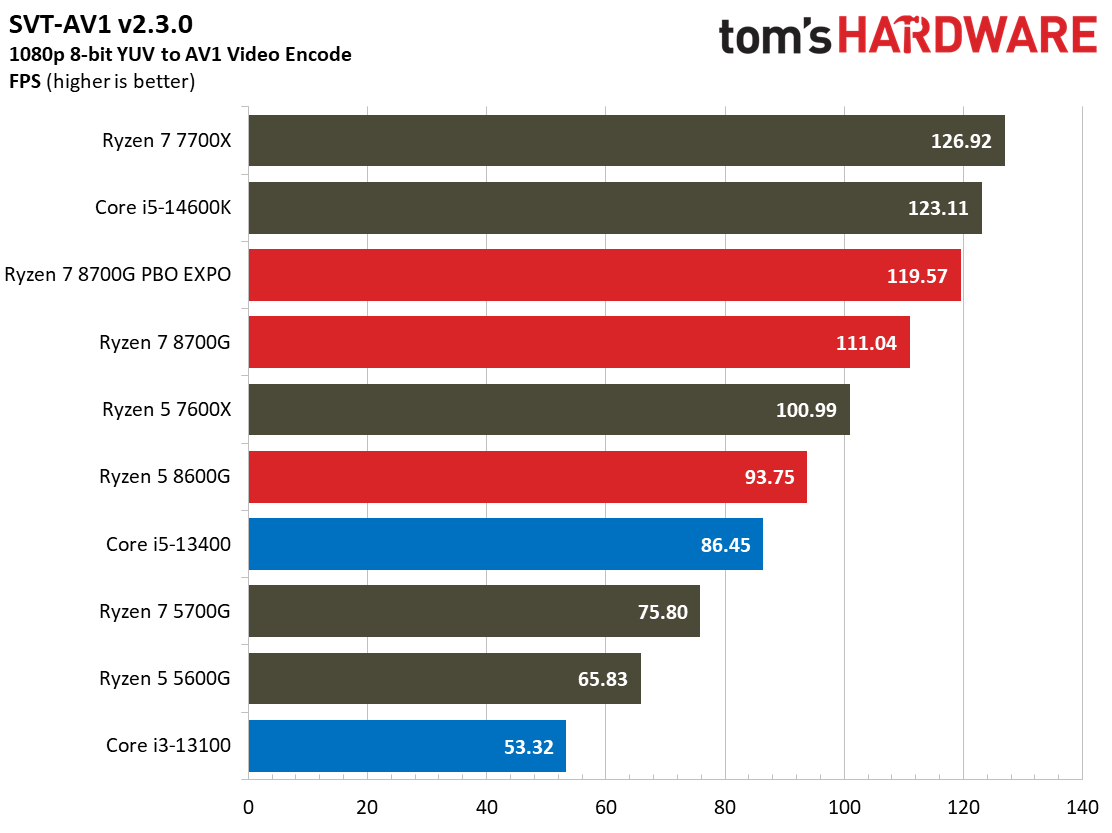
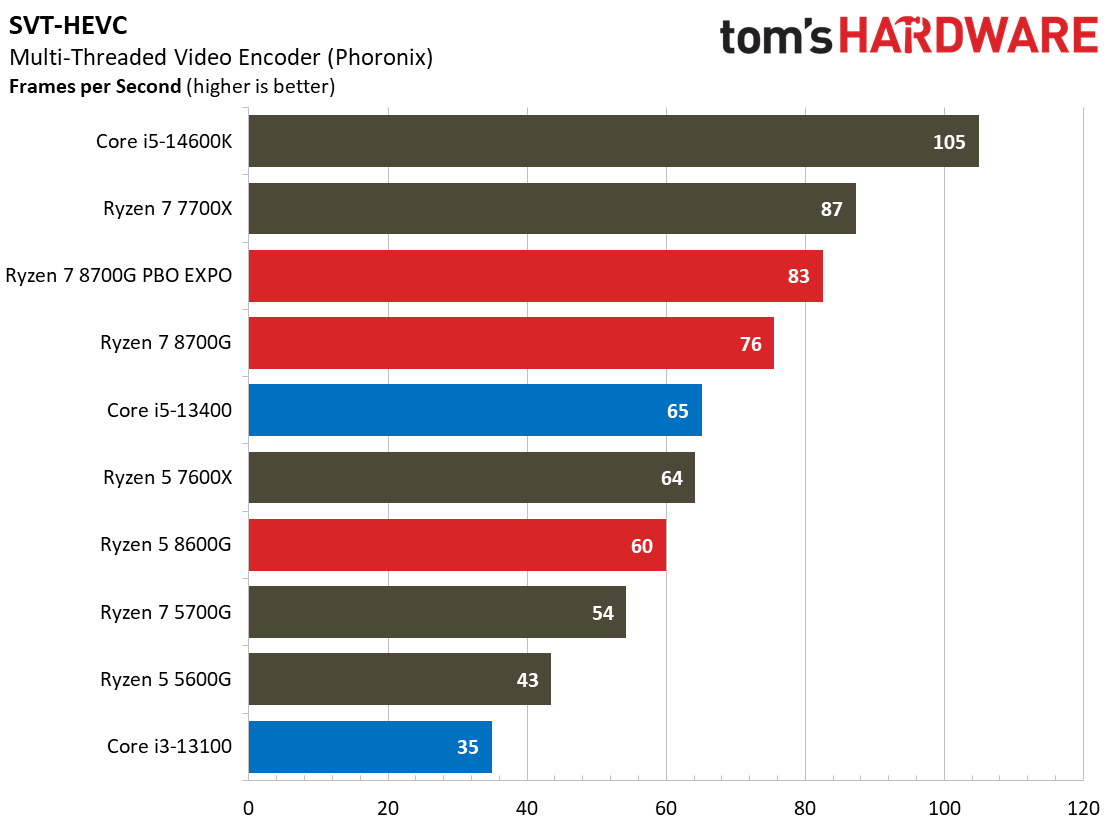
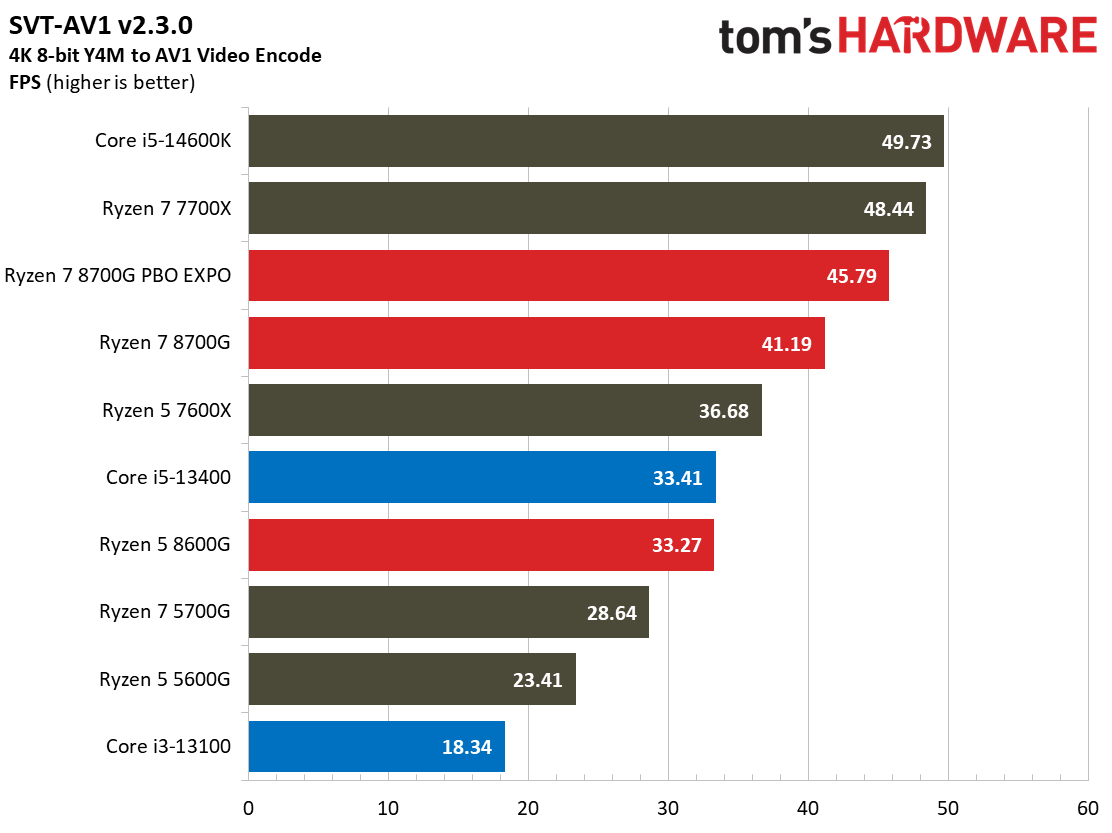
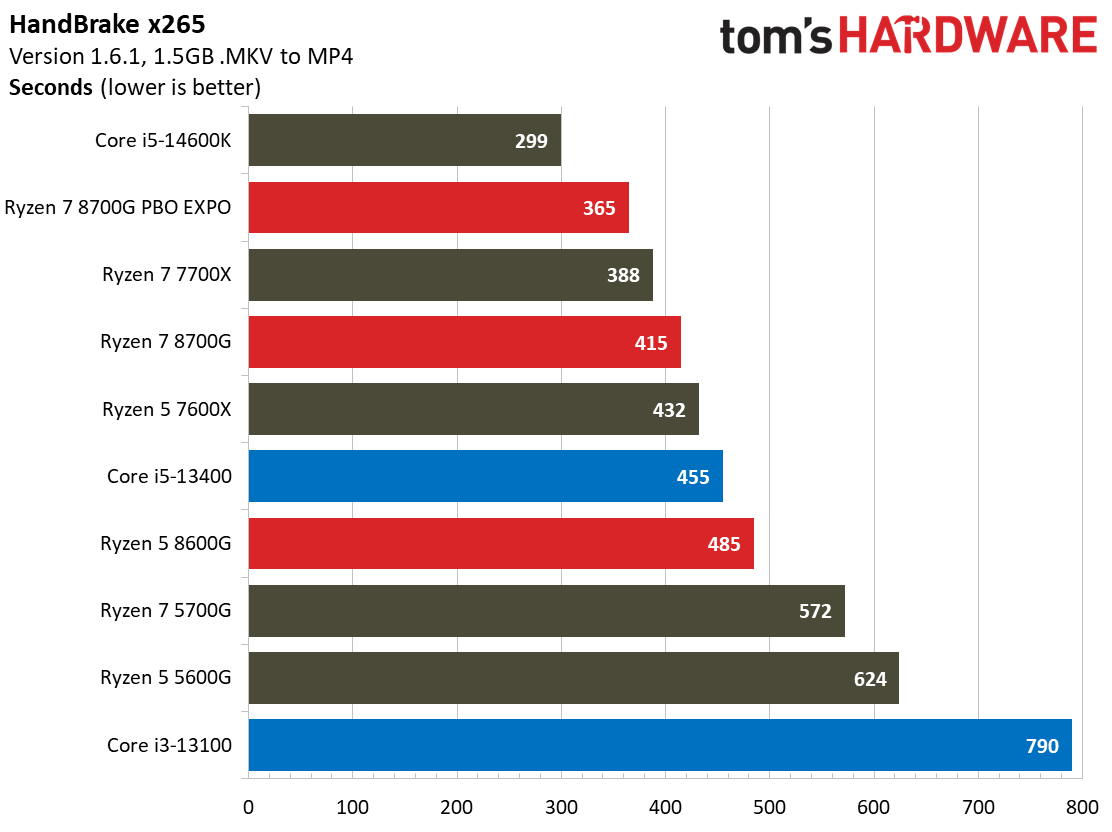
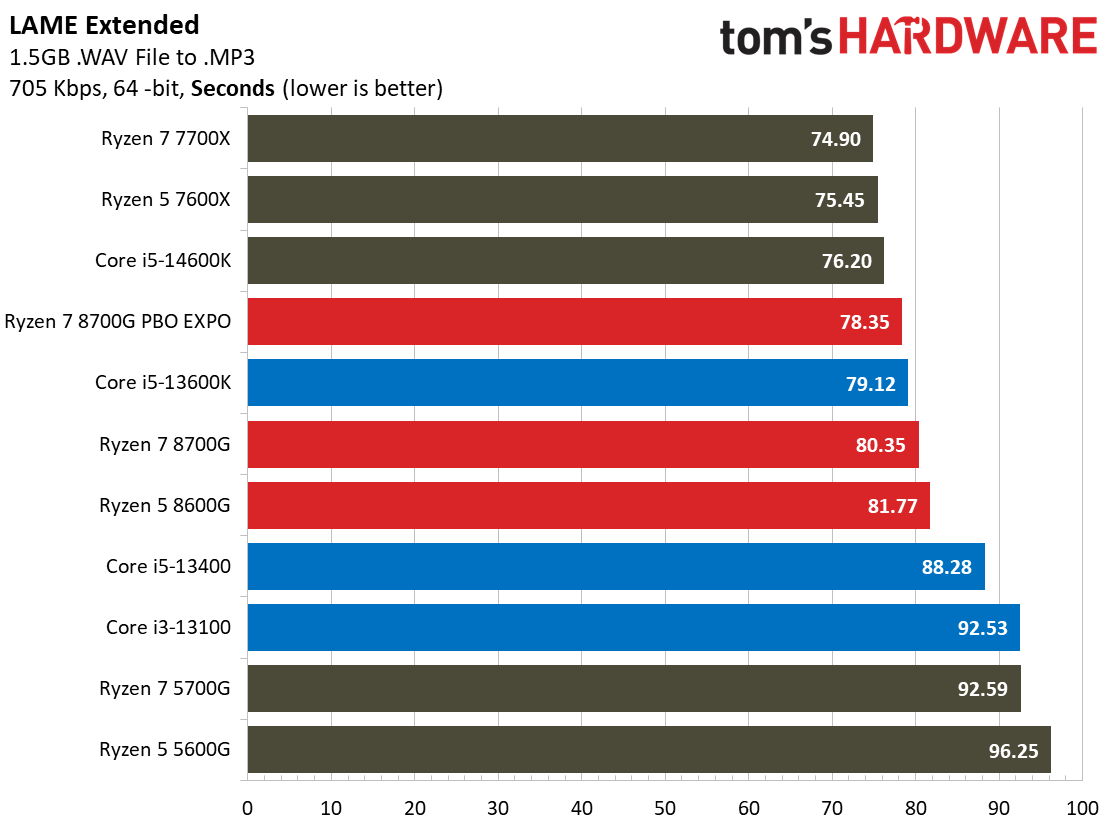
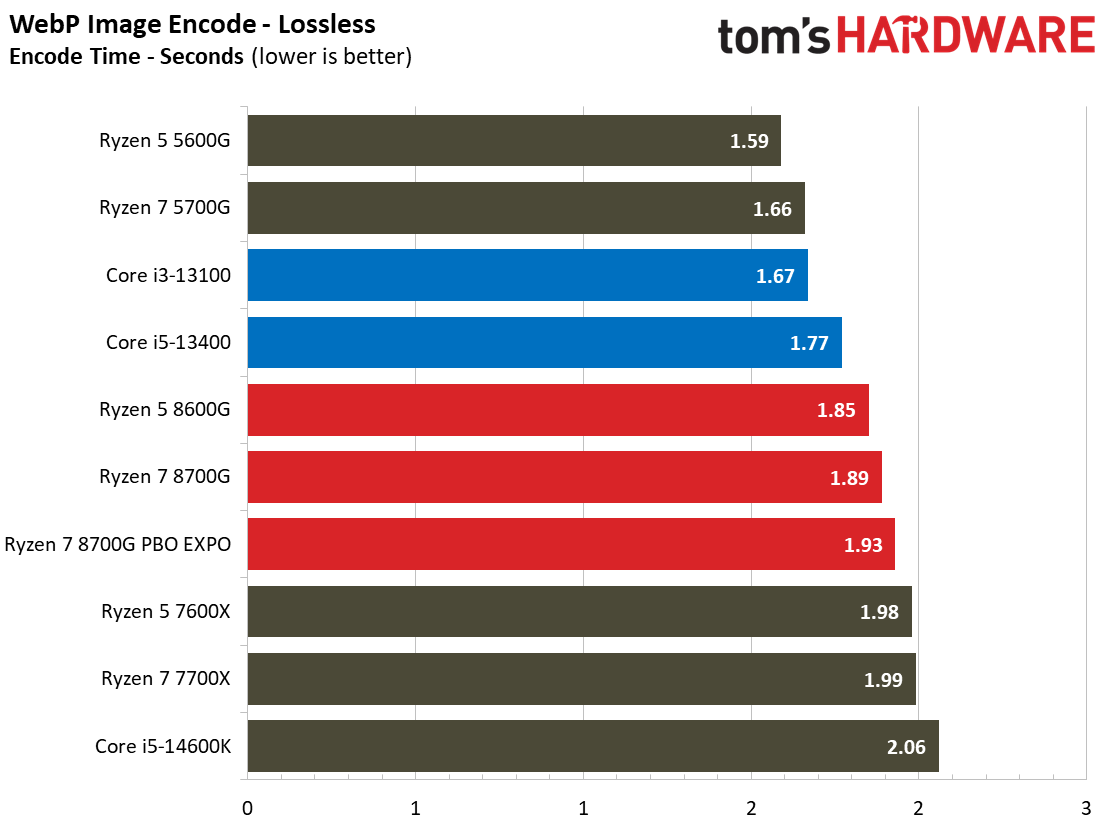
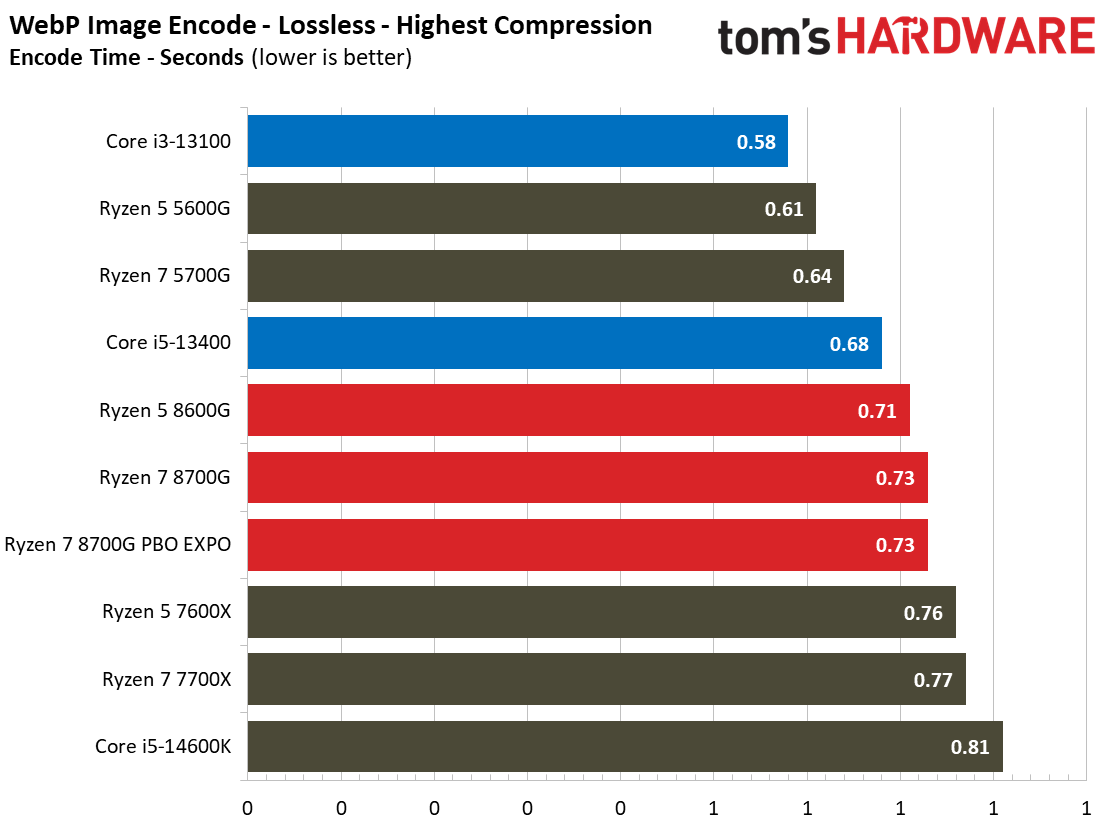
Our tests include single-threaded encoding benchmarks, like LAME and FLAC, but the SVT-AV1 and SVT-HEVC tests represent a newer class of threaded encoders.
Web and Office Benchmarks on AMD Ryzen 7 8700G
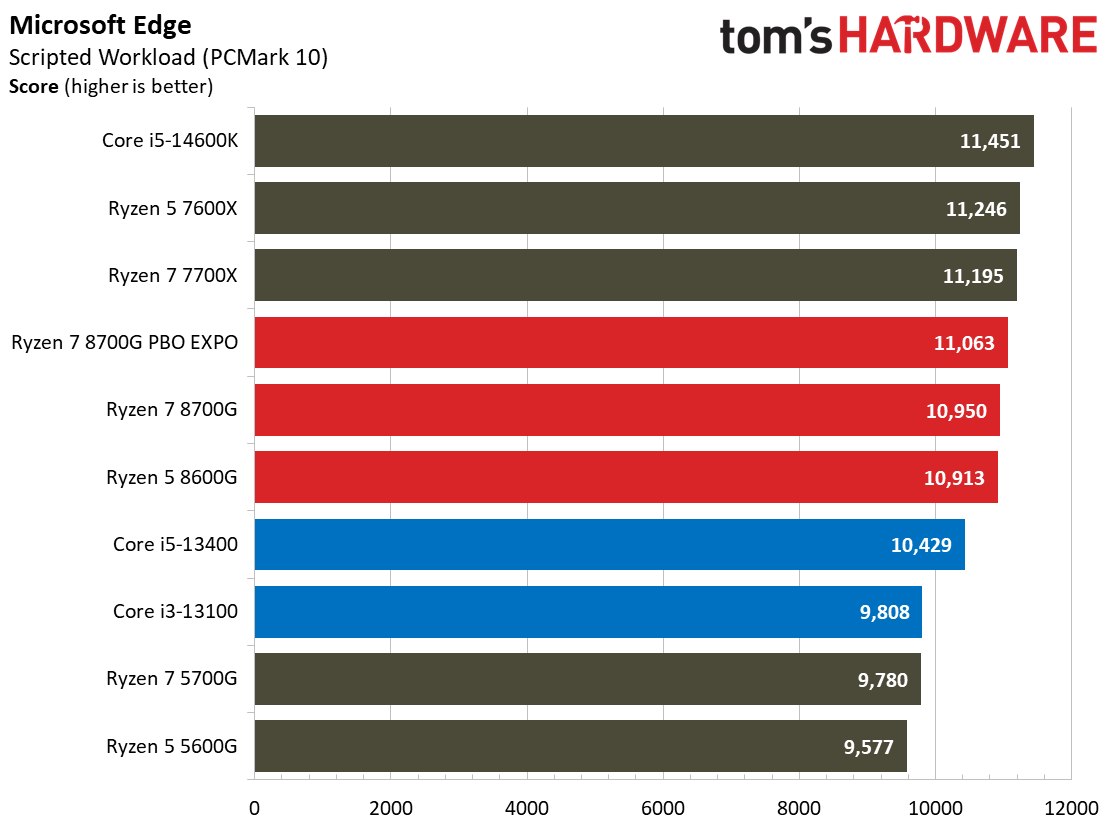
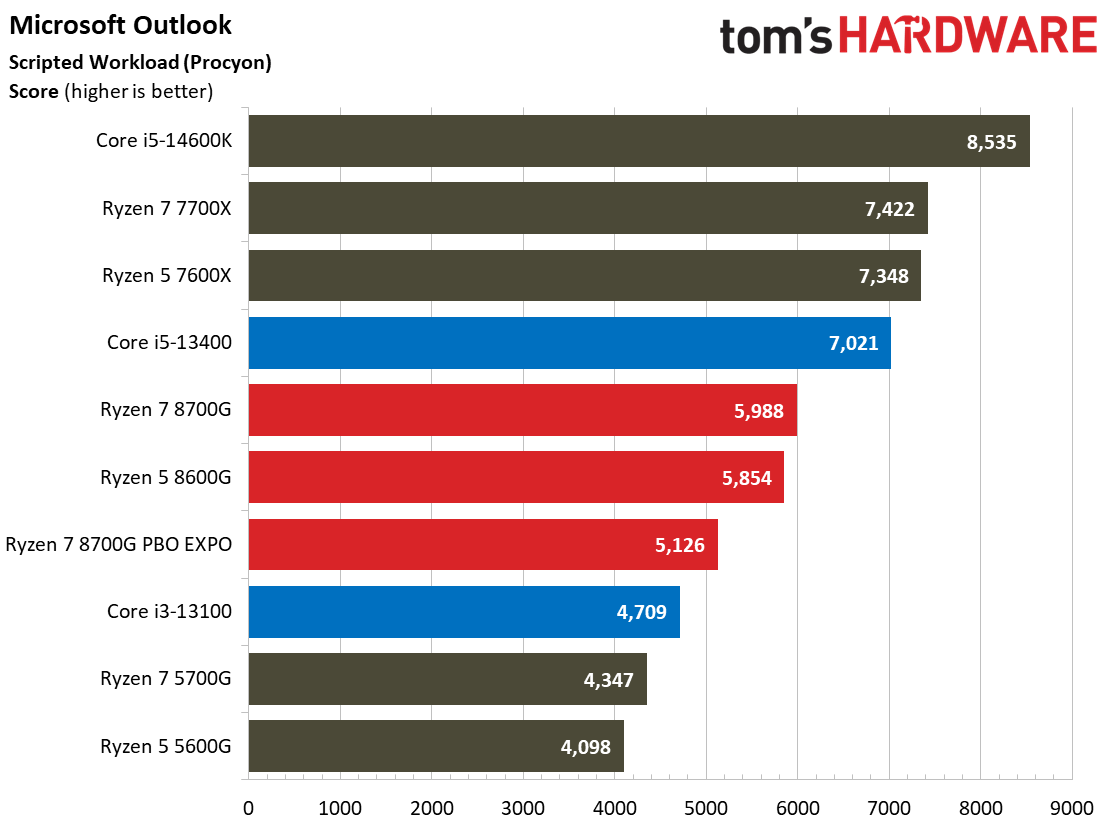
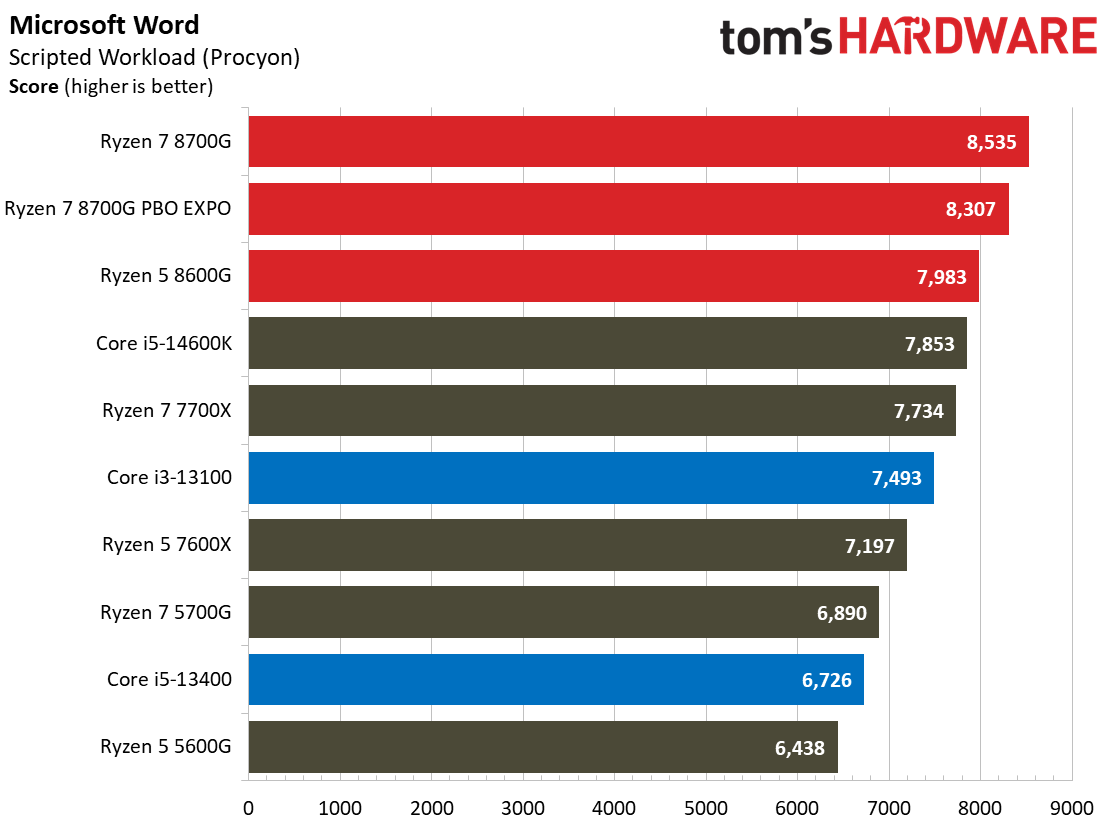
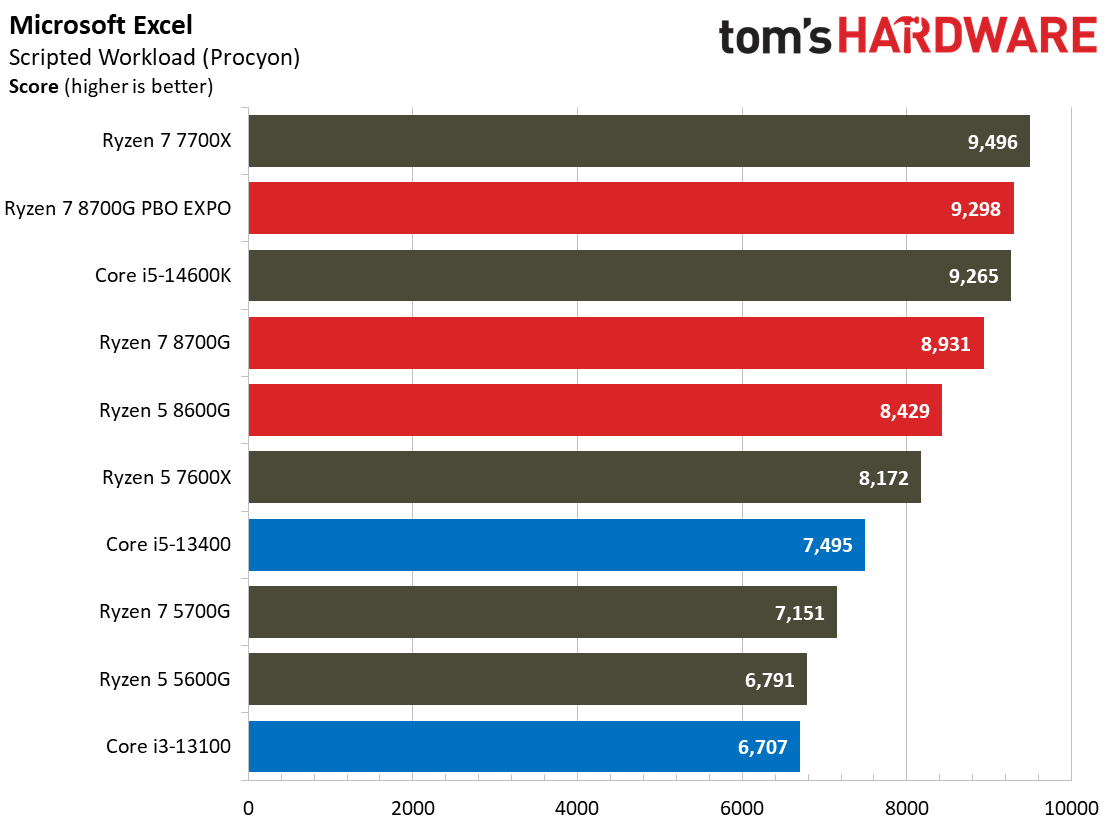
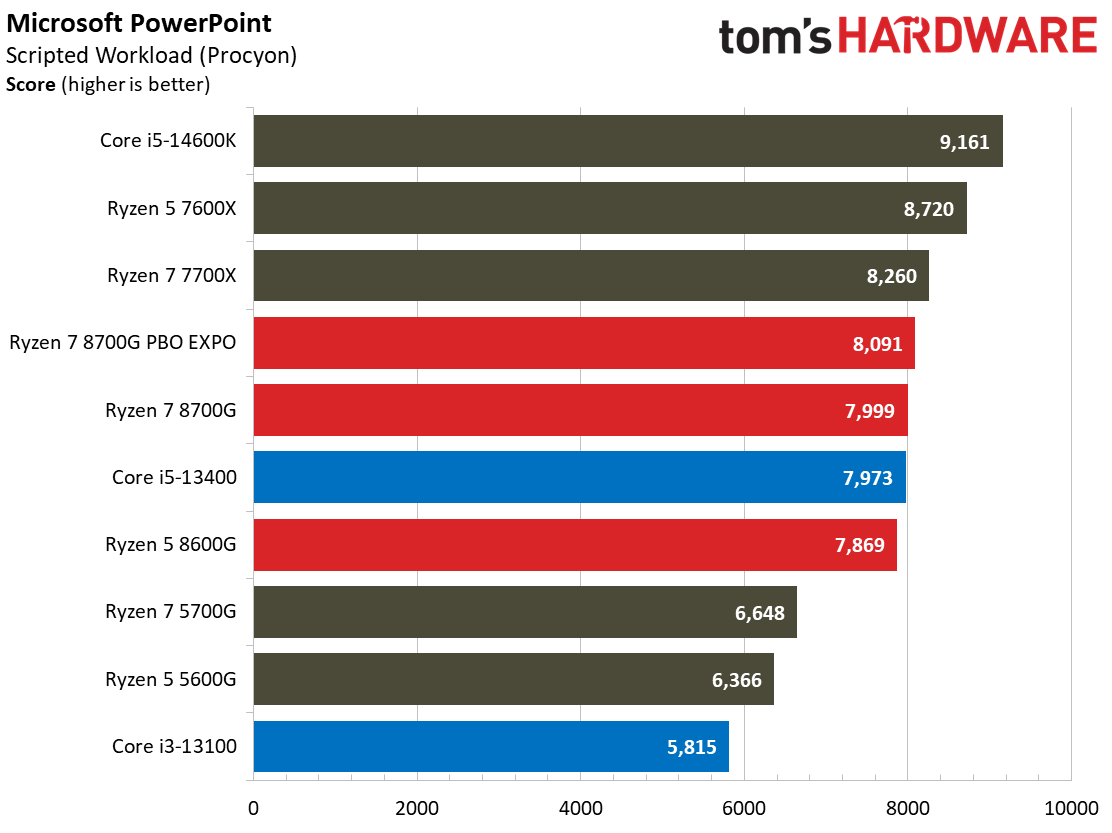
Web browser and office applications are ubiquitous the world over. Given its pricing and target audience, the Ryzen 7 8700G delivers good-enough performance in this standard fare.
Compilation, Compression, AI Chess Engines, AVX on AMD Ryzen 7 8700G
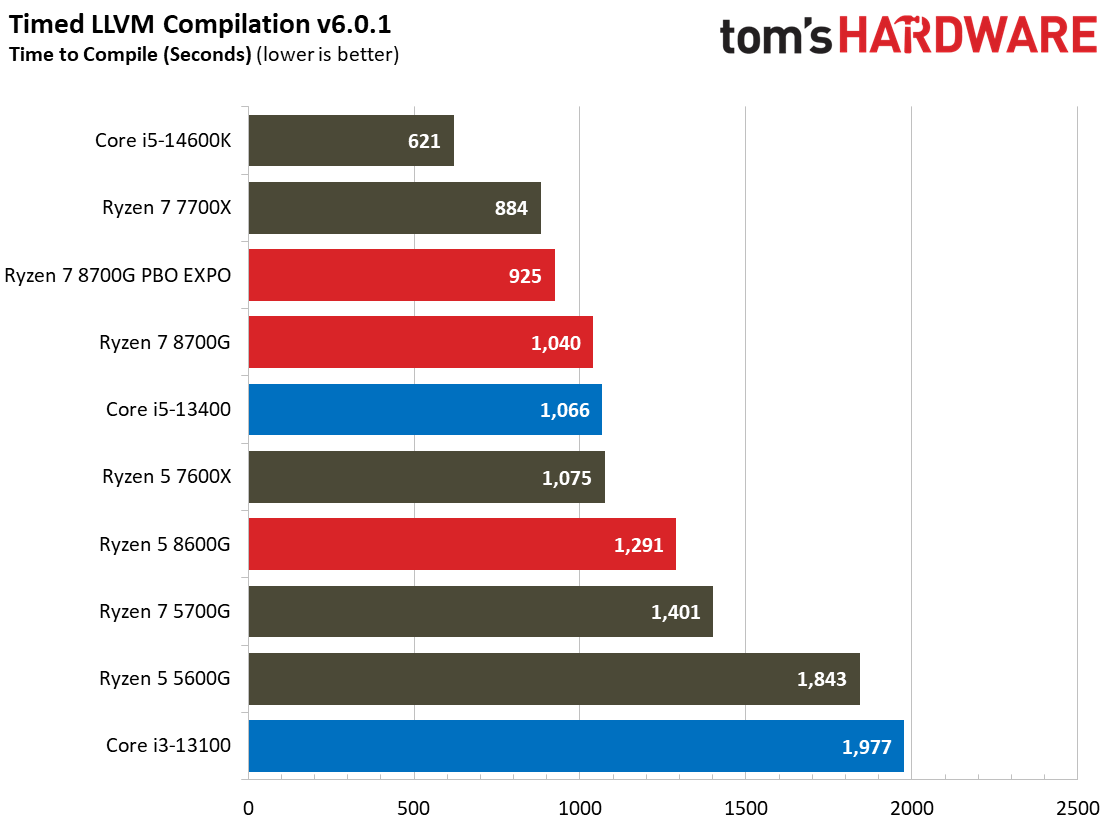
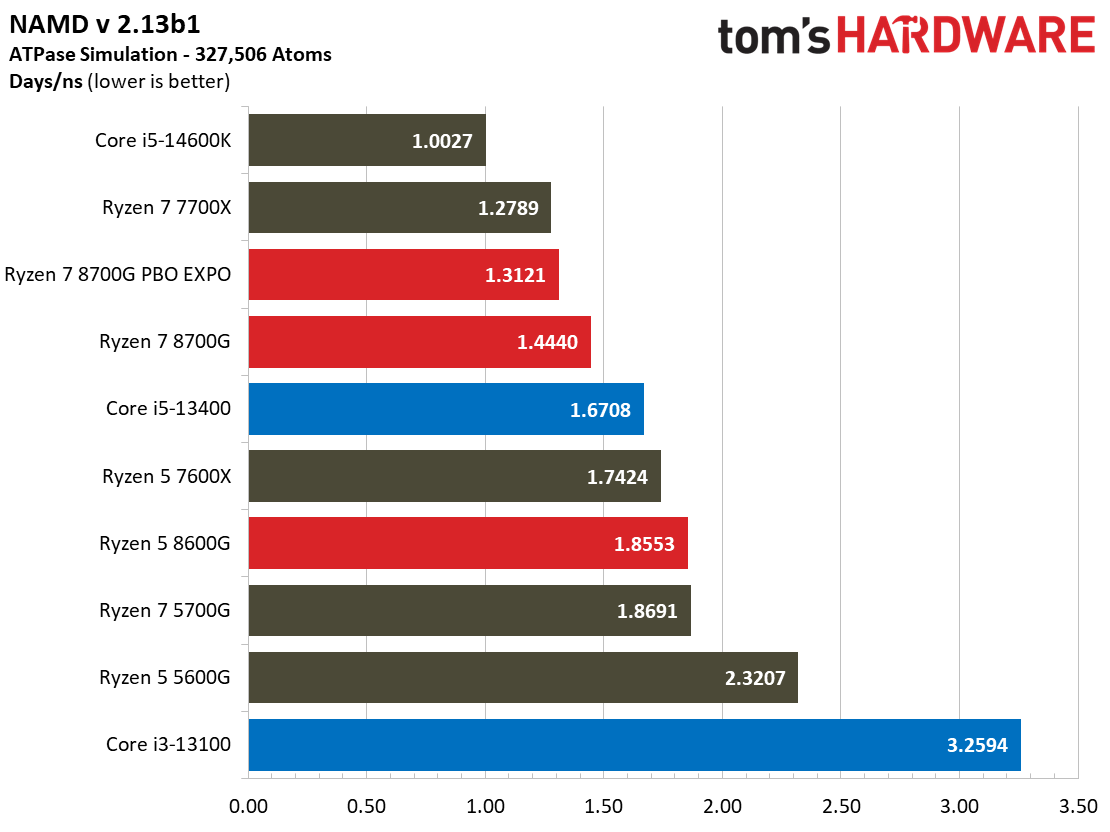
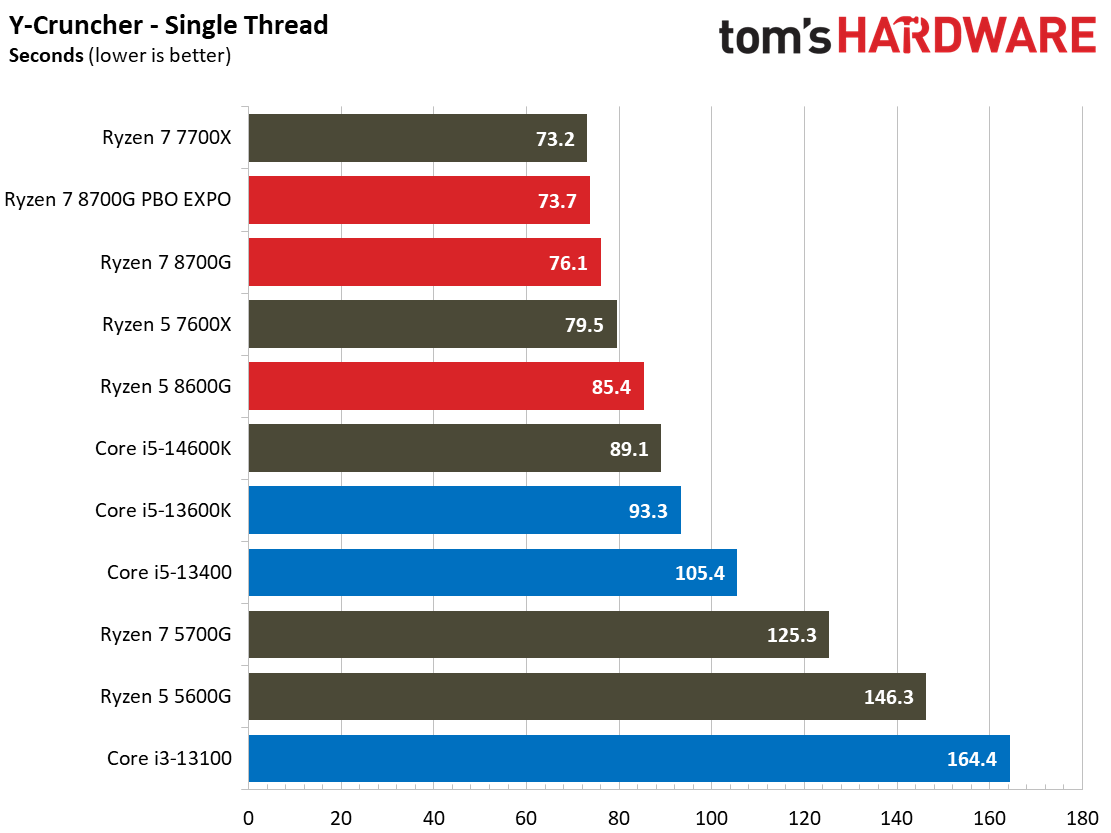
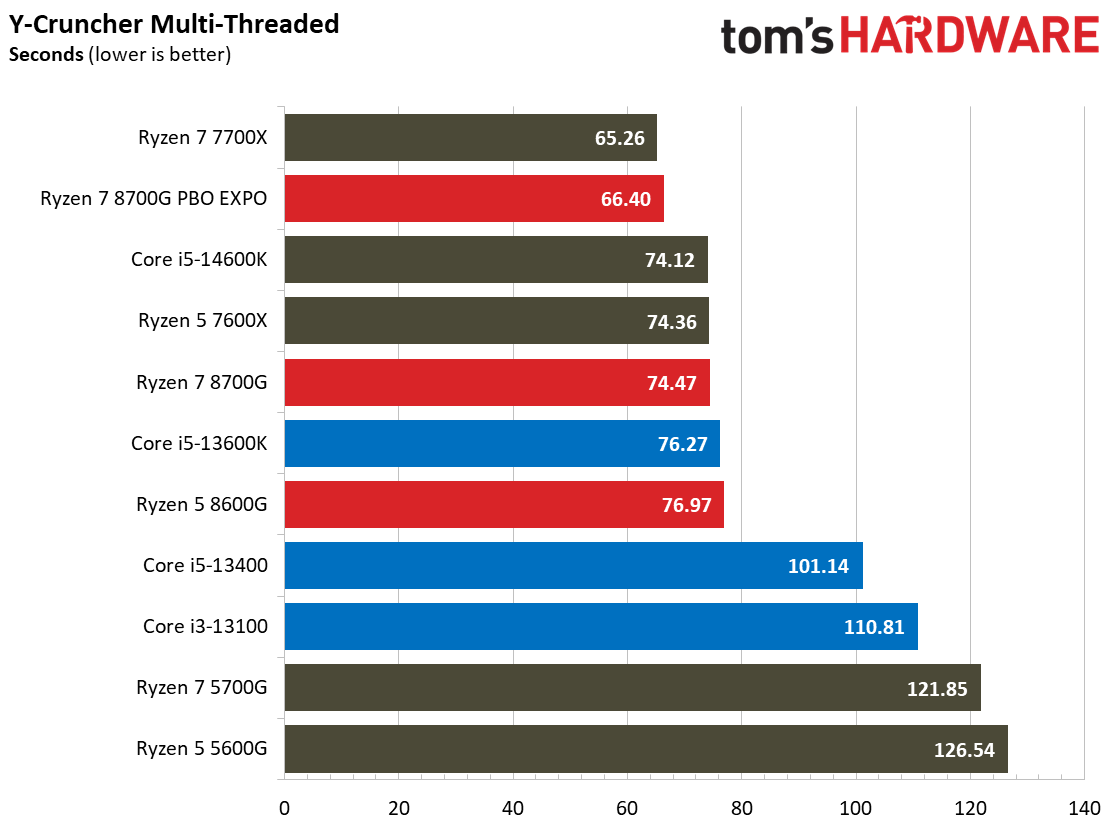
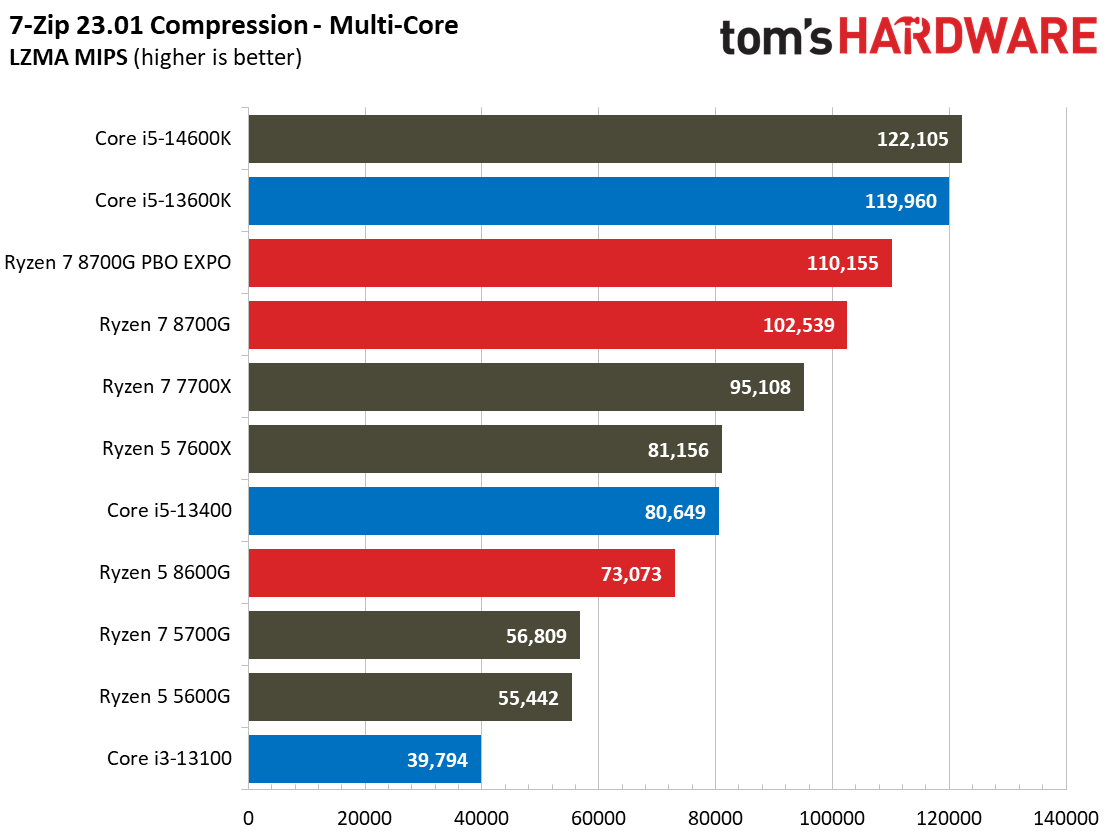
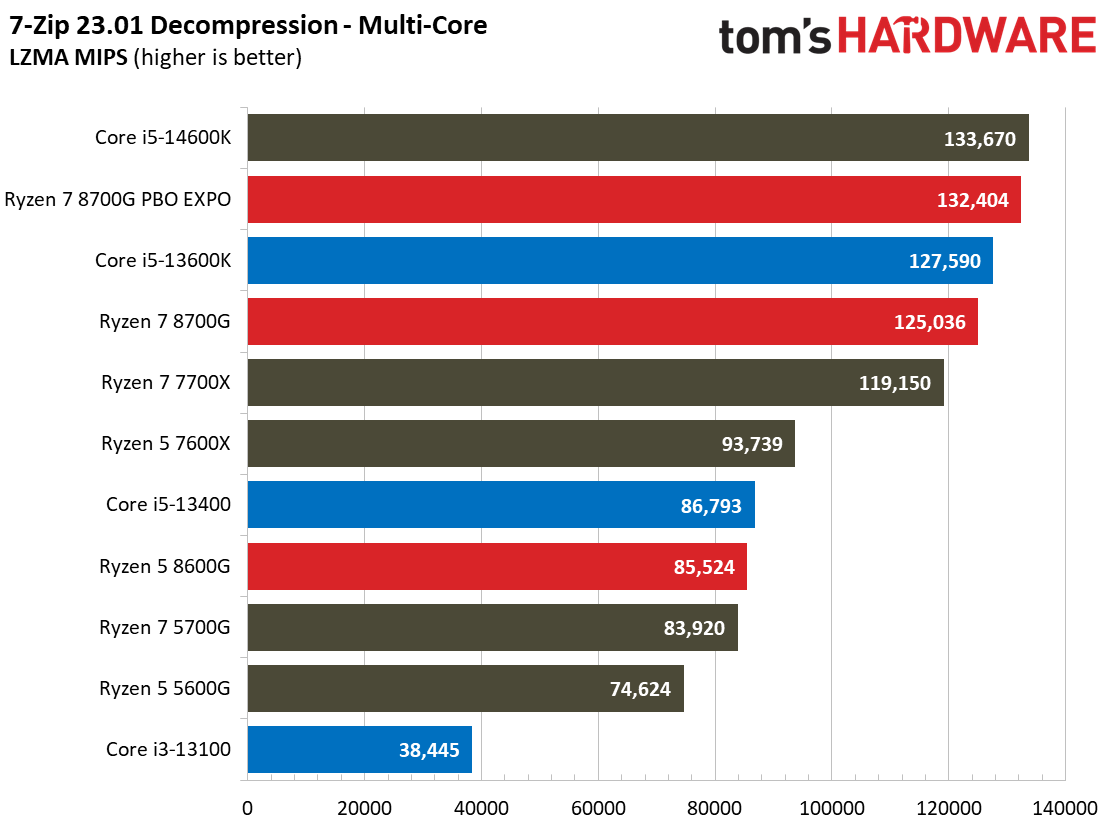
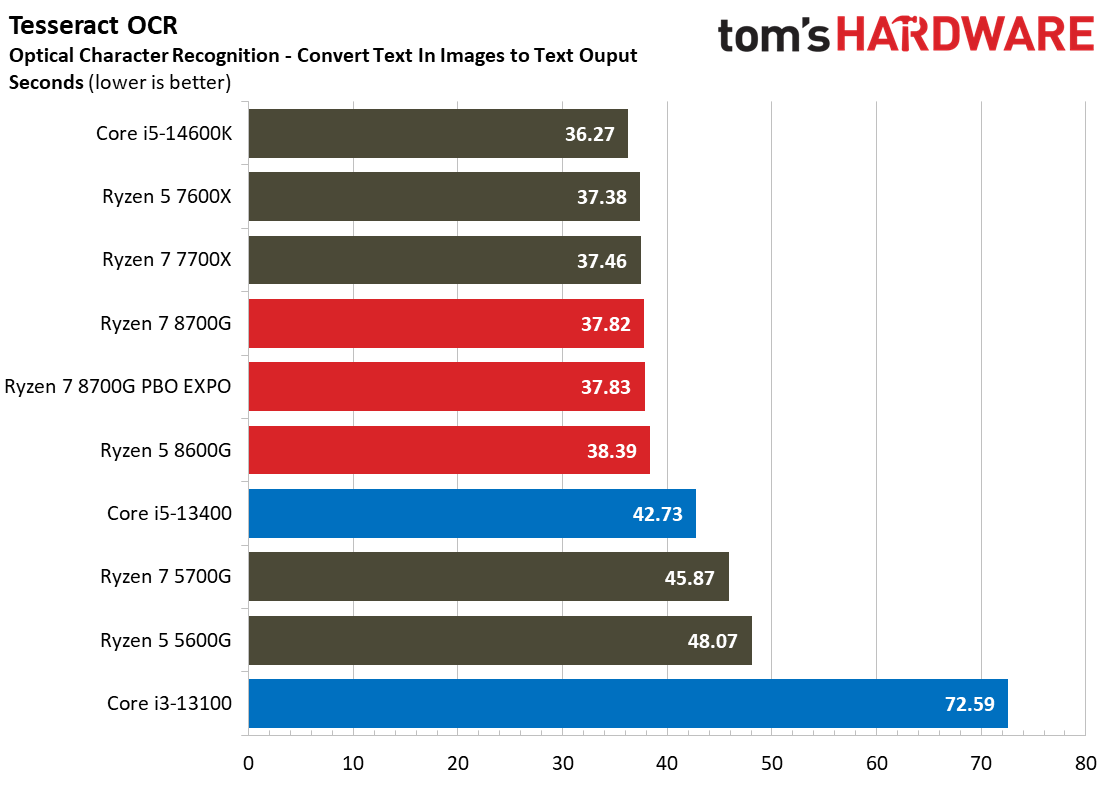
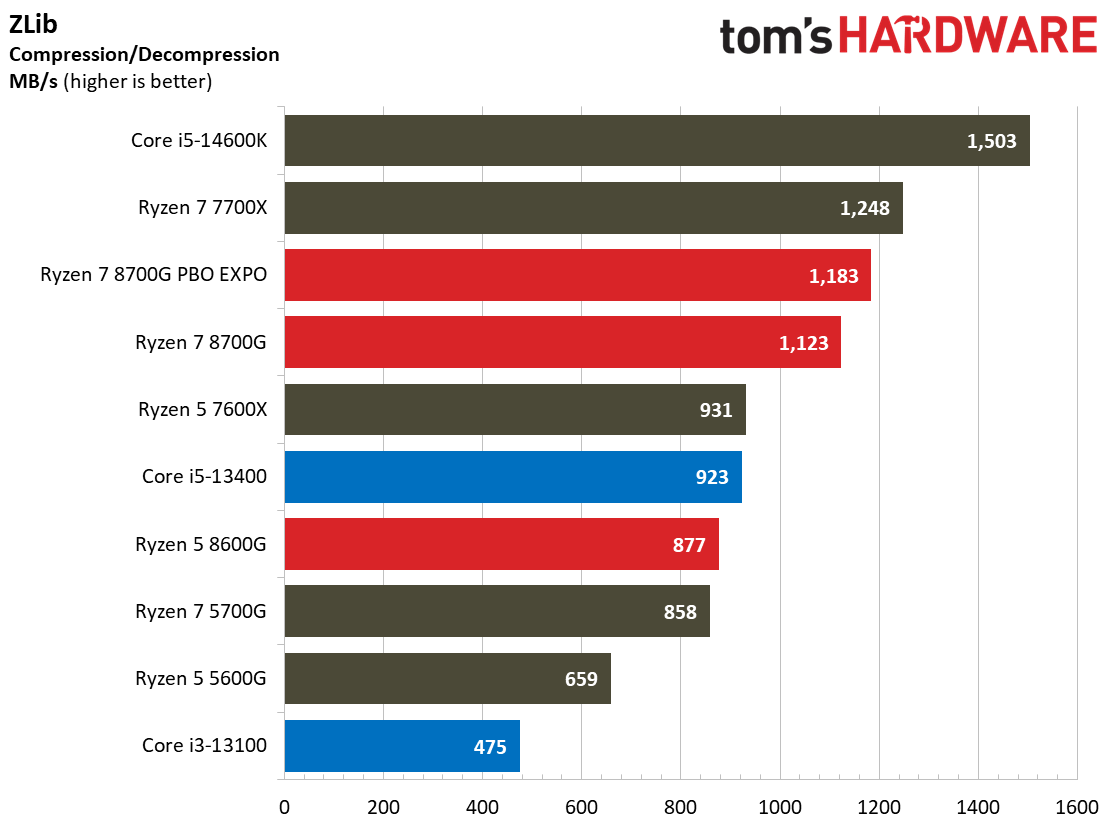
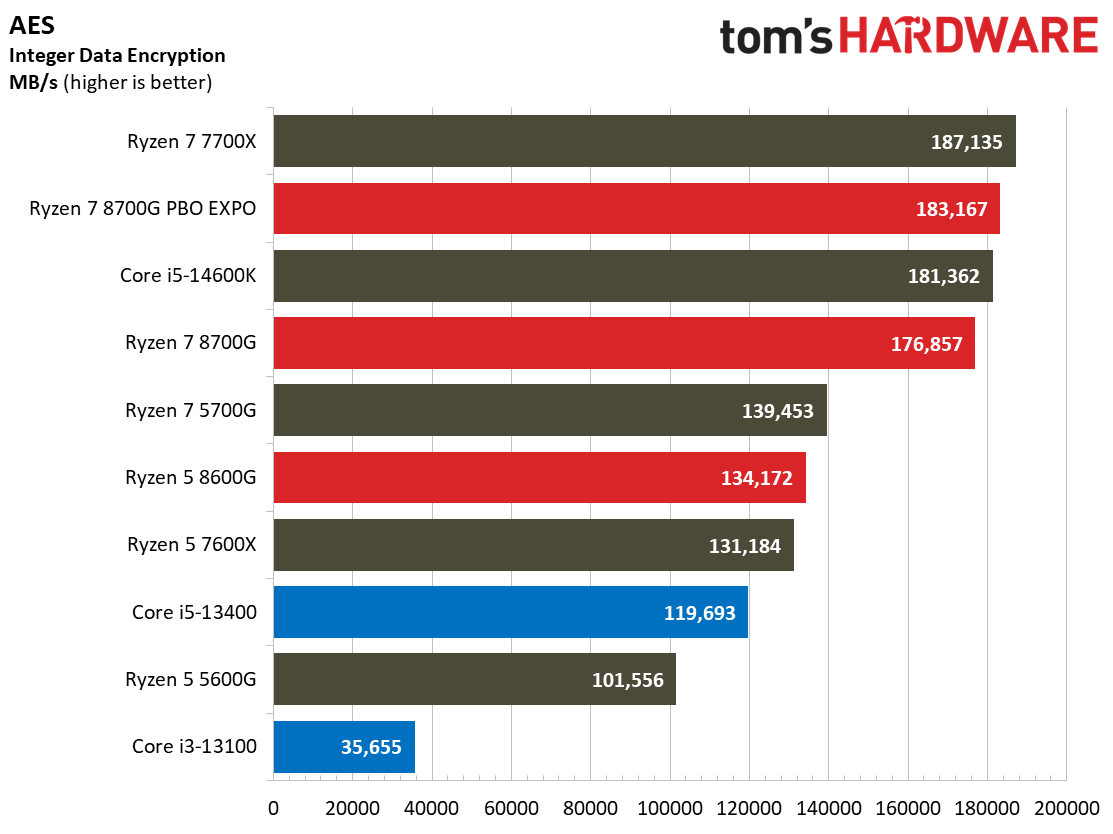
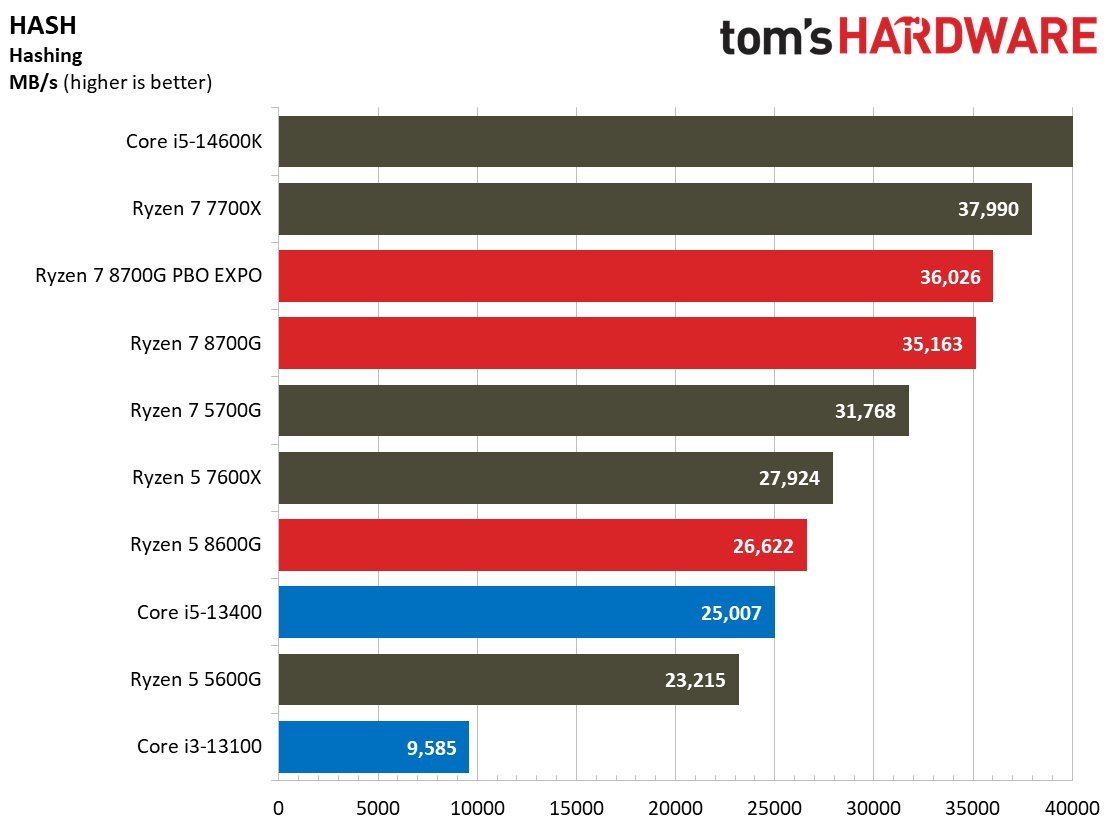
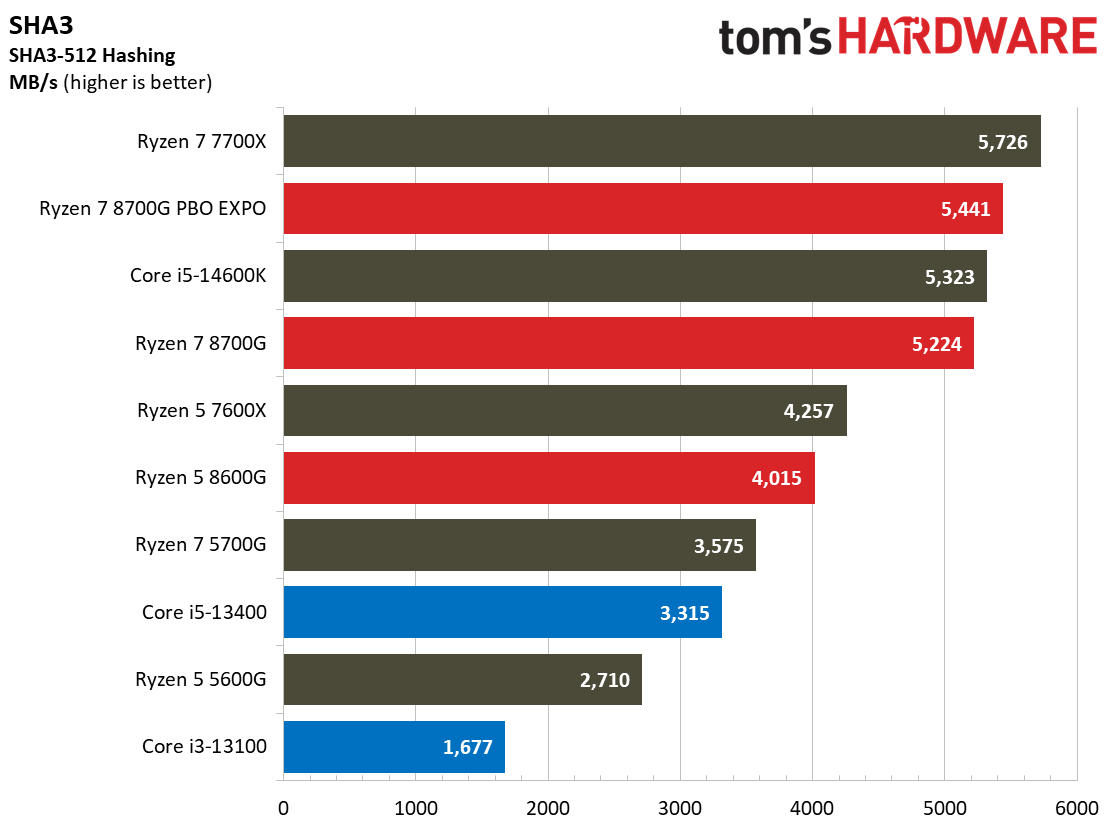
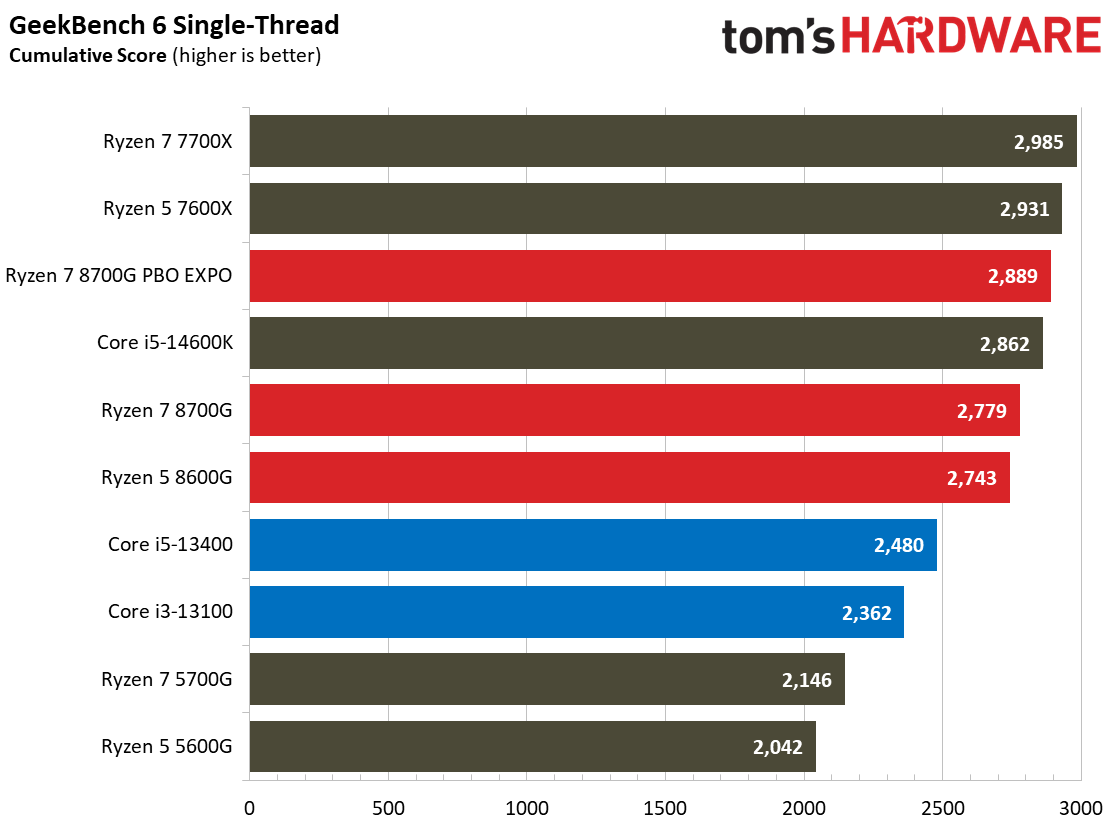
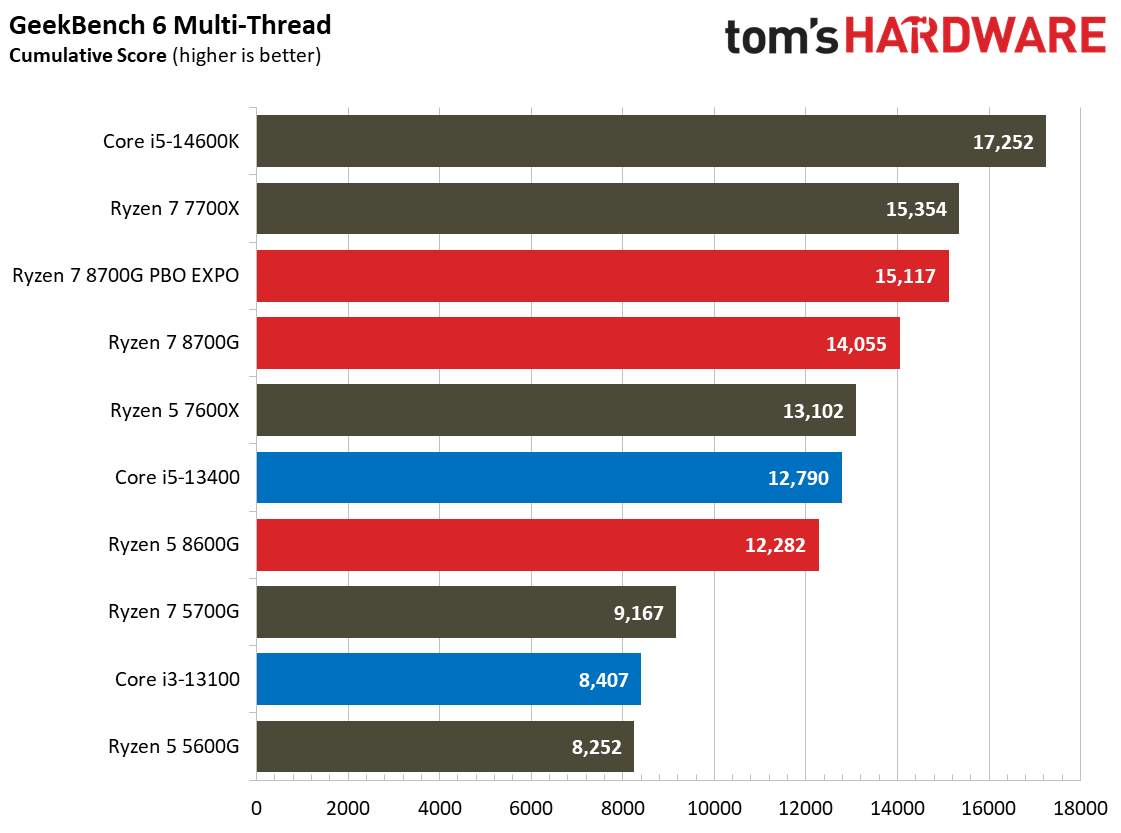
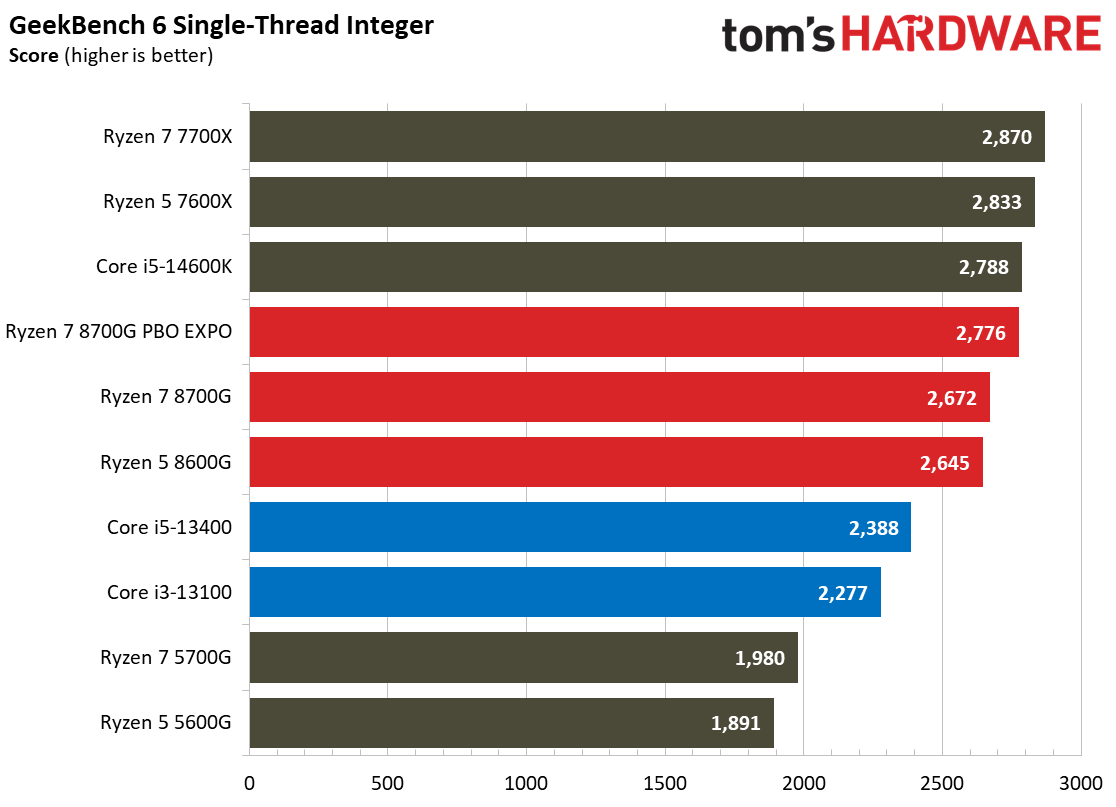
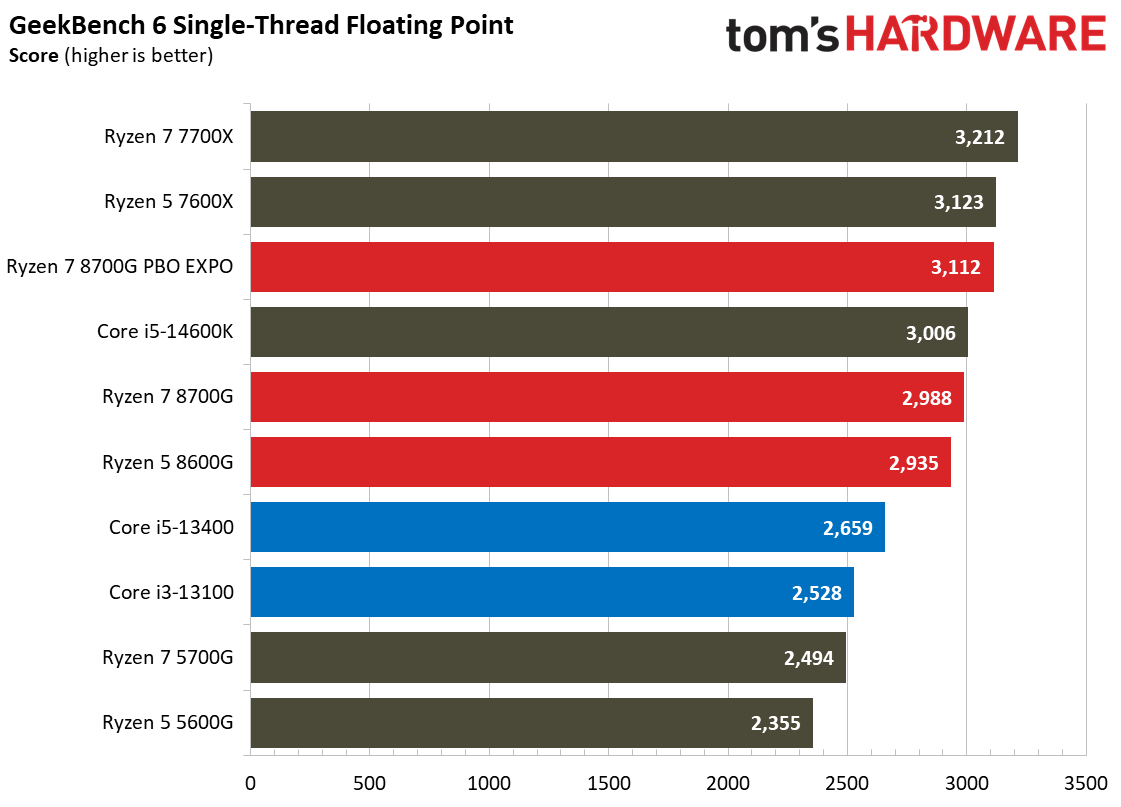
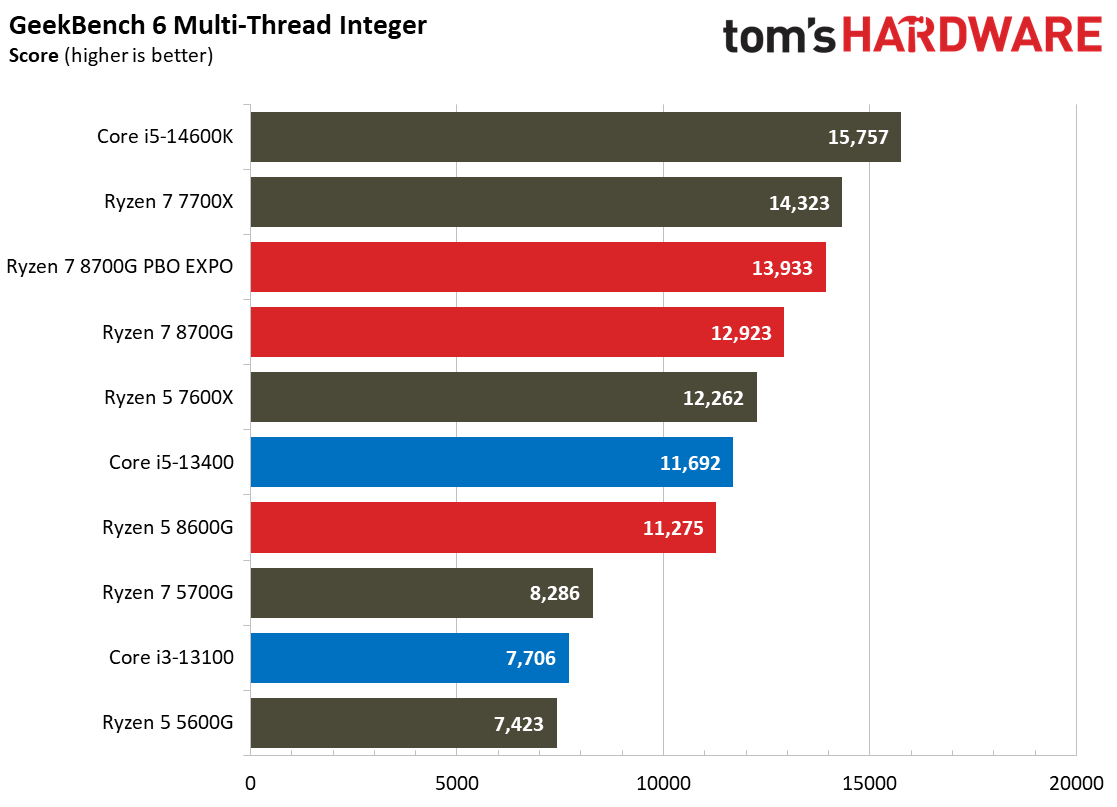
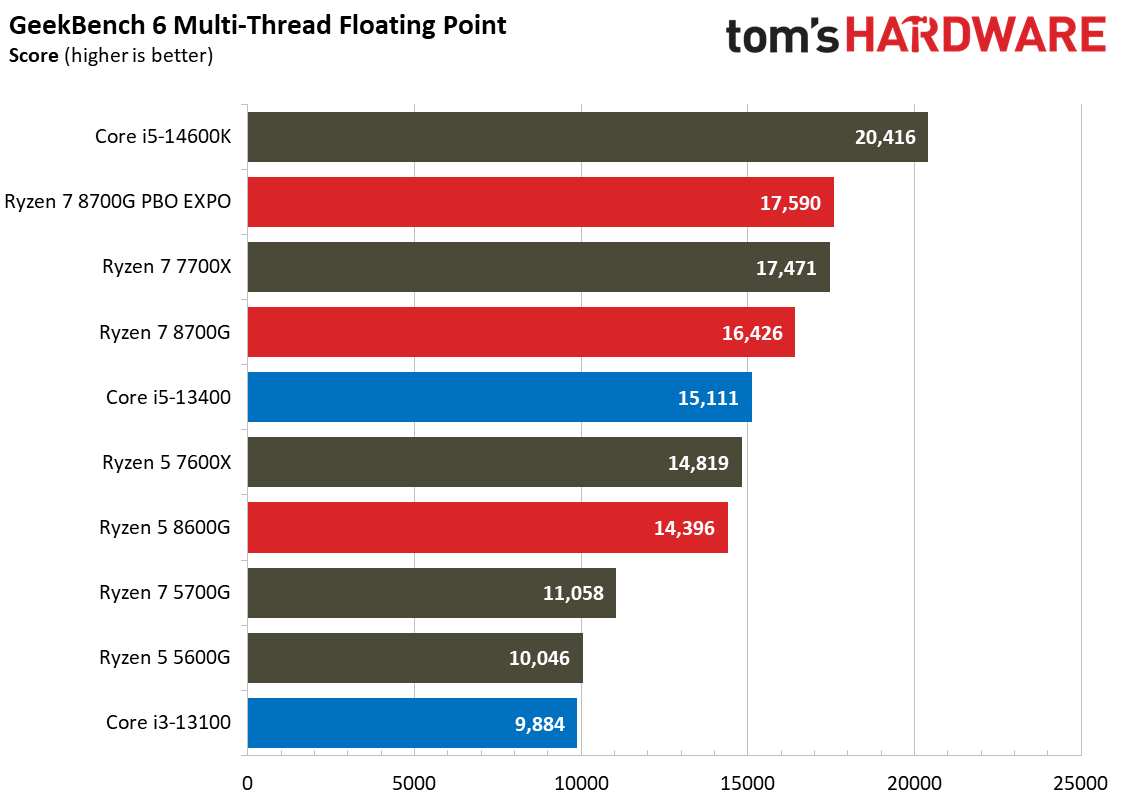
This selection of tests runs the gamut from massively parallel molecular dynamics simulation code in NAMD to compression/decompression performance. Y-cruncher computes Pi with the AVX instruction set, making for an exceedingly demanding benchmark. Y-cruncher was recently updated with improved tuning for AMD's AVX-512 implementation.
Frankly, most of these tests aren't relevant to the target audience for this class of chip. These tests are more important for higher-end chips, but we include them for completeness. However, they do highlight the generational gains from moving from the Zen 3 architecture to Zen 4.
Get Tom's Hardware's best news and in-depth reviews, straight to your inbox.
Current page: AMD Ryzen 7 8700G Application Benchmarks
Prev Page AMD Ryzen 7 8700G Discrete GPU Gaming Performance Next Page The Uncontested Niche
Paul Alcorn is the Editor-in-Chief for Tom's Hardware US. He also writes news and reviews on CPUs, storage, and enterprise hardware.
-
usertests AMD Ryzen 7 5700G Hyper-RX, Power Consumption, Overclocking, Test SetupReply
Hyper-RX -> HYPR-RX
"The Ryzen 7 8700G utterly destroys the previous-gen Ryzen 7 8700G"
This review appears to be much more favorable to the 8700G. AnandTech did all testing at DDR5-5200.
Gamers Nexus found an issue with STAPM being enabled and degrading performance. That's Skin Temperature Aware Power Management, which obviously is not relevant to desktop APUs in a desktop computer.
There have been good bundles in the US with 7600X/7800X3D + motherboard + DDR5. Micro Center obviously but also Newegg.
https://slickdeals.net/f/17261224
If you do live near a Micro Center, take note of the stupidly low open box prices on DDR5-6000 kits. These returns aren't happening because the memory is bad. Maybe it's because they were included in so many bundles:
https://www.microcenter.com/category/4294966965/desktop-memory-ram?storeid=181 -
suryasans I will wait another year to buy Ryzen 8000G series as these APUs are still not a good value in terms of price/performance.Reply -
suryasans The included AI accelerator needs to be exposed in Gaming. It Will become a break through if the Ryzen 8700G GPU+NPU can be combined with discrete Graphics like Radeon RX 7600 to accelerate ray tracing effects in Gaming in the same FPS like Ray tracing effects disabled.Reply -
logainofhades For the price of an 8700g, 32gb ddr5 ram, and motherboard, you could build something like a 5700x, 32gb ddr4, b550 board, and an RX 6600, that would destroy the IGP in the 8700g. The price is simply too high.Reply -
jxdking 8700G is weird.Reply
Only with half the L3 cache of 7700x, it doesn't perform well in game even with a dgpu. -
logainofhades Replyjxdking said:8700G is weird.
Only with half the L3 cache of 7700x, it doesn't perform well in game even with a dgpu.
Some of those issues may be related to what GN discovered, as mentioned earlier. -
Tom Sunday Reply
The kids in their 'VANS T-Shirts' at GameStop are of a different opinion regarding all of the hoopla being now offered on the various tech channel reviews. Their argument is that the 8700G will not in real life have the same juice or capability of a (2019) GTX 1650 mobile and which so far allowed them playing quite satisfactory 80%+ of their mostly outdated and now starkly reduced on-sale games. And no matter what AMD is now promising the new 'Phoenix' chips are being capable off!suryasans said:I will wait another year to buy Ryzen 8000G series as these APUs are still not a good value in terms of price/performance.
For me these new Phoenix editions are essentially pointless as well. The three-star rating here in way telling the story! The Phoenix line I also think represents a niche product and the niche here is even smaller than with the once mighty Threadripper. Making me wonder why AMD would even bring this kind of new product to the market! Talking about niches:
Office PC: Too much GPU performance
Gaming PC: Much too little GPU performance
Parents PC: Too much GPU performance
Multimedia PC: Marginal at best
Children's PC (simple games): PossibleAccording to current rumors, Zen5 x3D will not come onto the market until 2025 and which would be my first consideration all things considered. Finally it will be curious to see in see how AMD sells or will market these new APUs through their strategic partners. -
usertests Reply
16 TOPS is weak. It has an efficiency advantage in laptops when it can be used. I don't think there's any chance that it can make upscaling or raytracing better.suryasans said:The included AI accelerator needs to be exposed in Gaming. It Will become a break through if the Ryzen 8700G GPU+NPU can be combined with discrete Graphics like Radeon RX 7600 to accelerate ray tracing effects in Gaming in the same FPS like Ray tracing effects disabled.
We'll see how XDNA 2.0 does at a significantly higher 45-50 TOPS. But I would still bet that it is not utilized by games anytime soon, or for offloading functions that are already handled by a dGPU. (I would love to be proven wrong, I still think it's a neat accelerator to have.)
Should be interesting to see how Strix Point does with increased 24 MiB L3 cache, but also a dual-CCX design.jxdking said:8700G is weird.
Only with half the L3 cache of 7700x, it doesn't perform well in game even with a dgpu. -
artk2219 AM5 really does need a cost reduction on the chipset, to help lower motherboard pricing since you cant do much about the RAM cost. Hopefully that can be addressed whenever they release the x700 series, i'm sure theyre also not worrying about it as its selling anyway, even with the high price. In the long run it's likely not sustainable, hopefully they figure that out before they have another socket 939 moment.Reply
